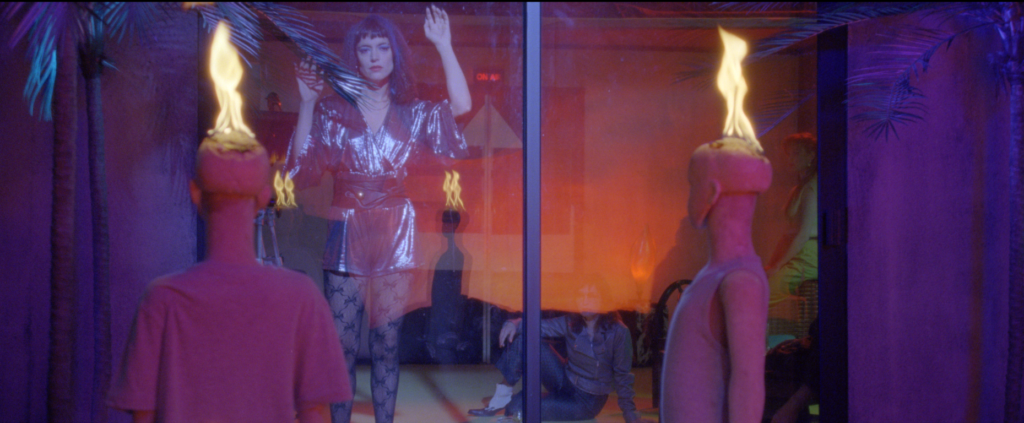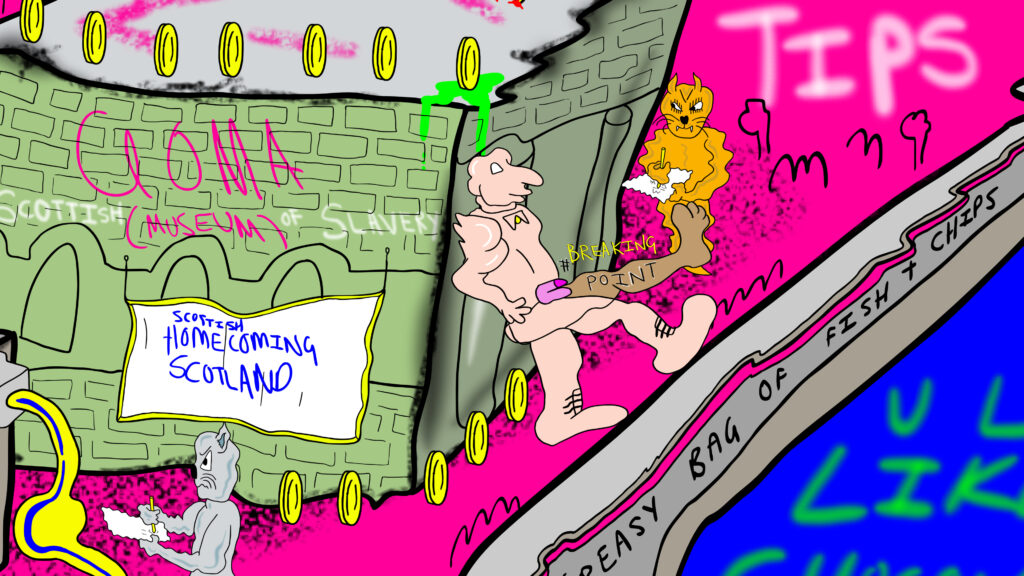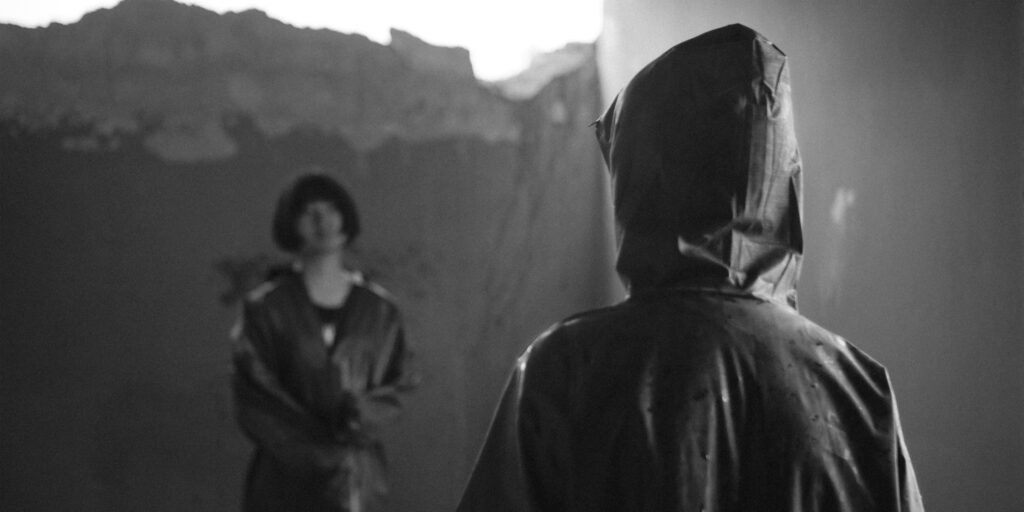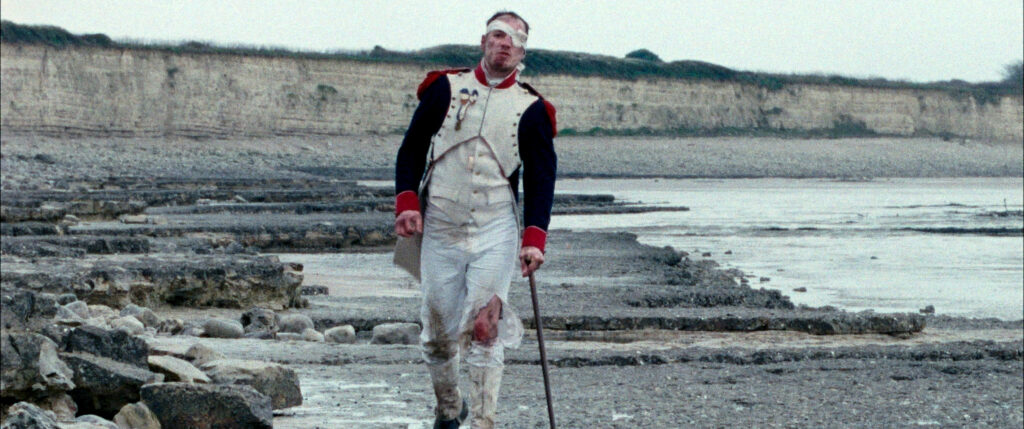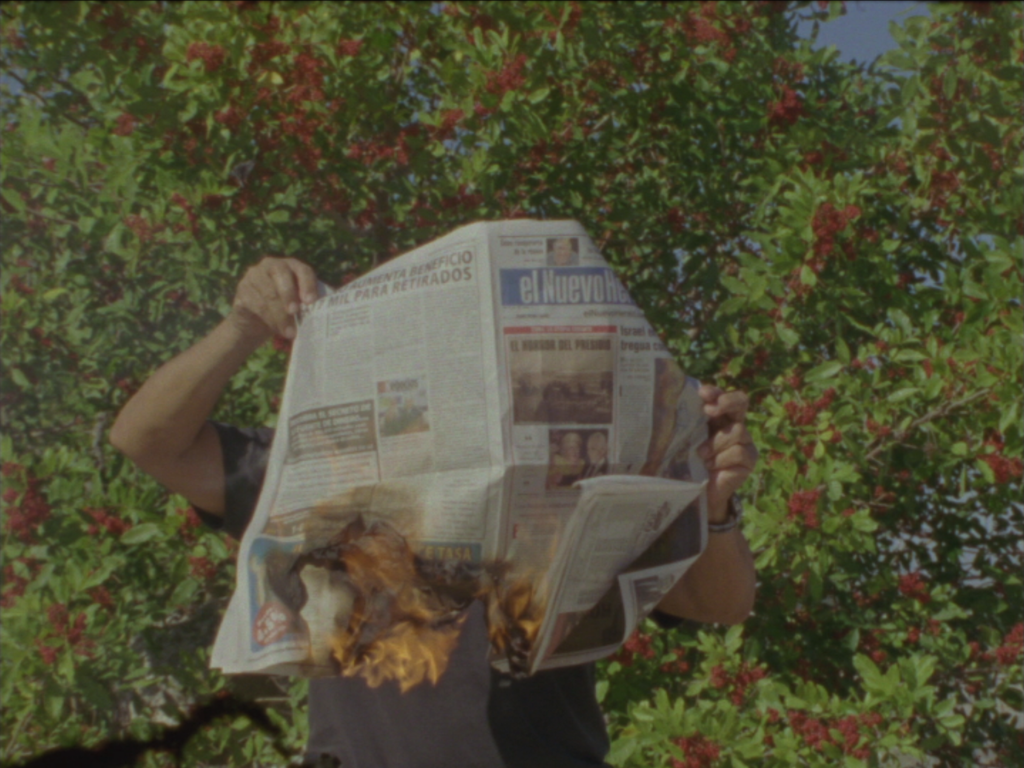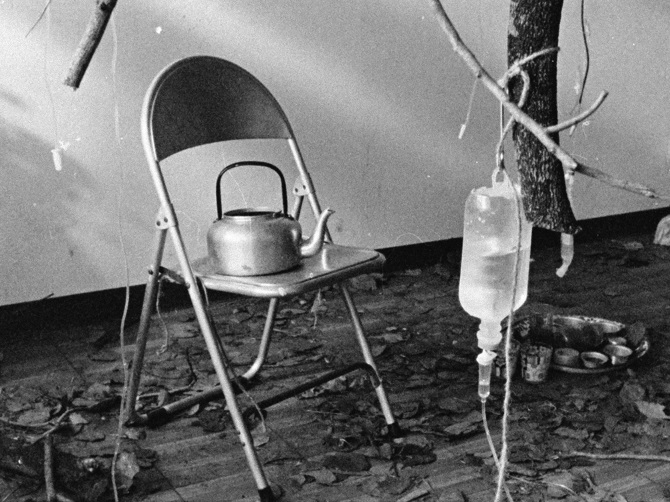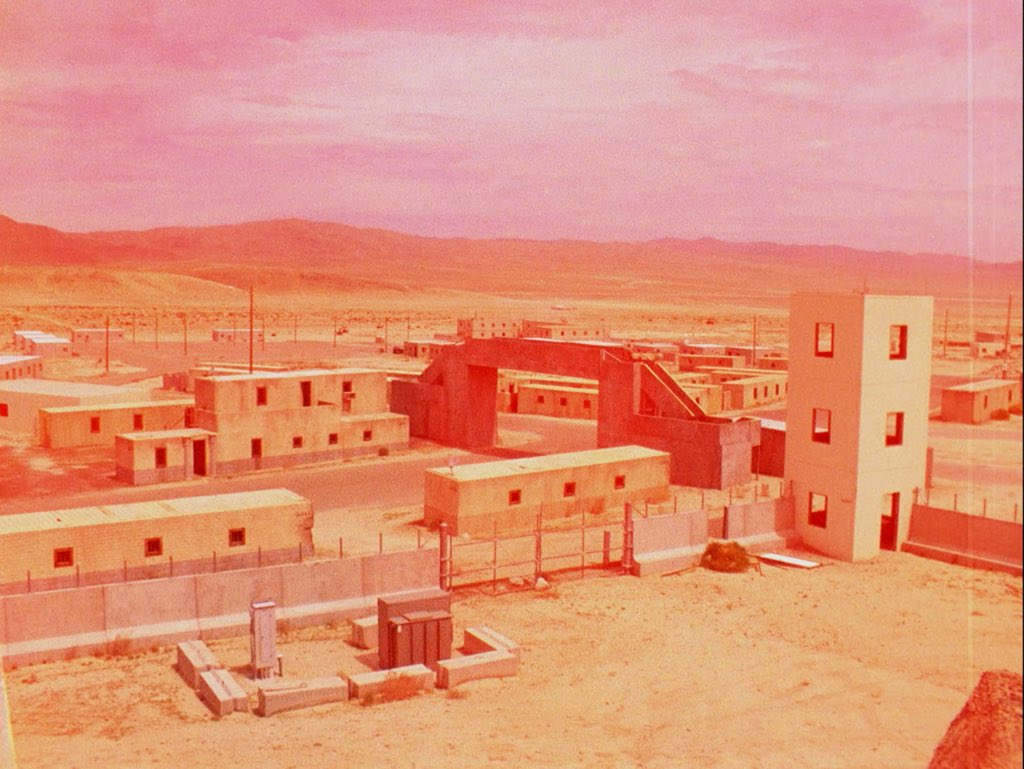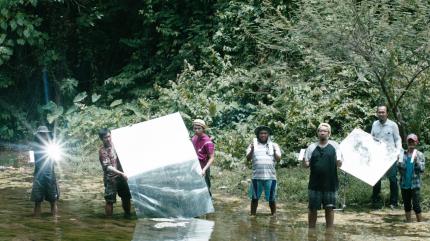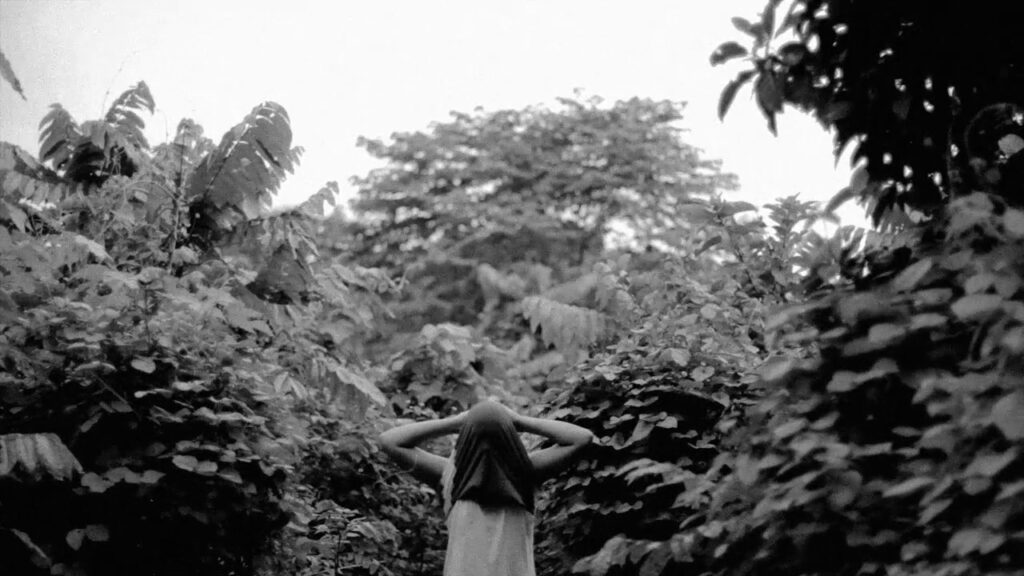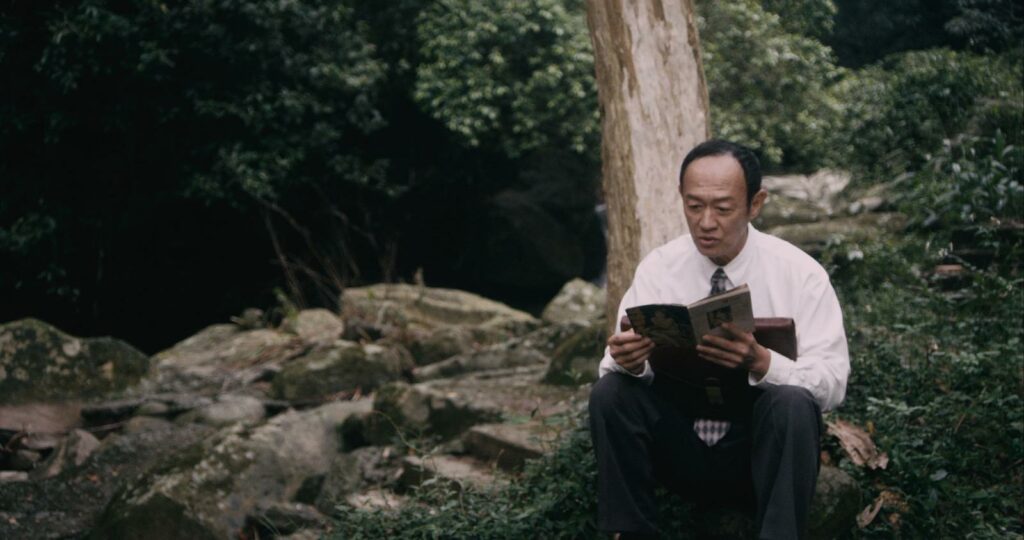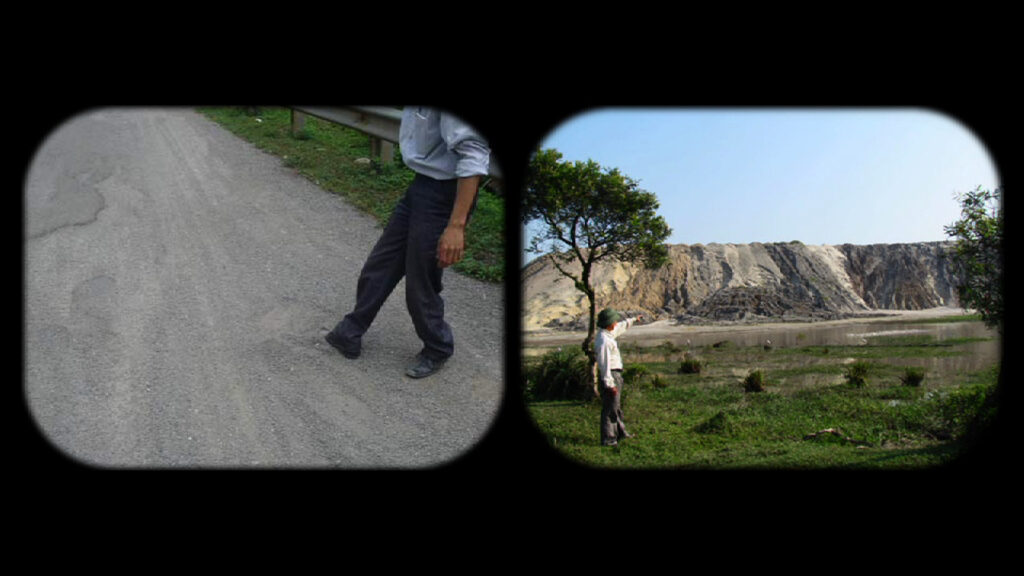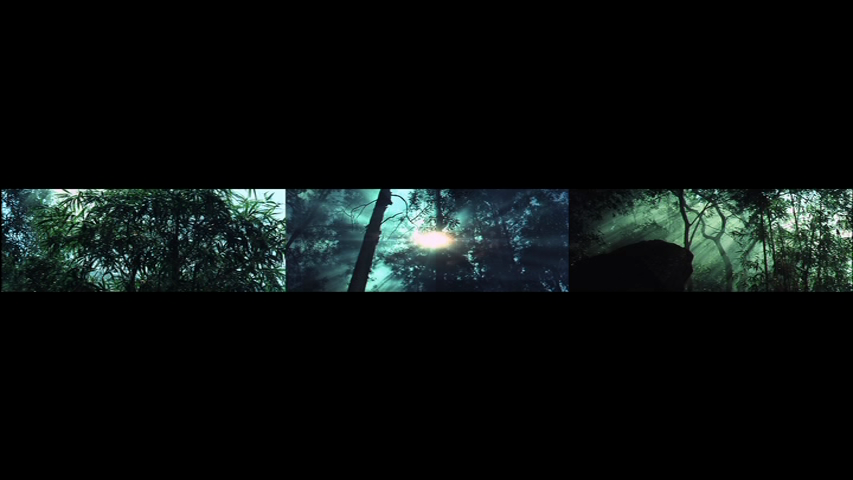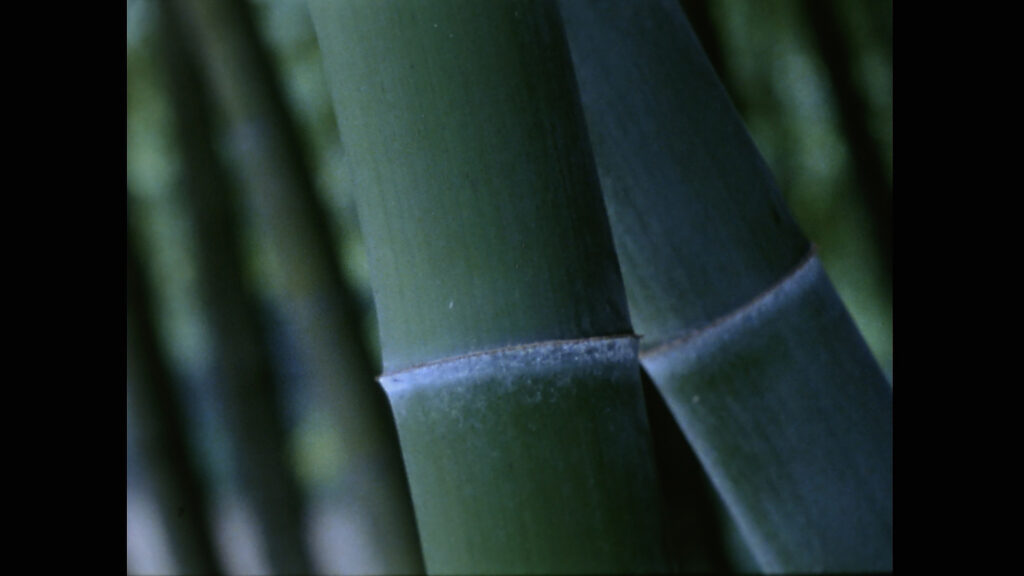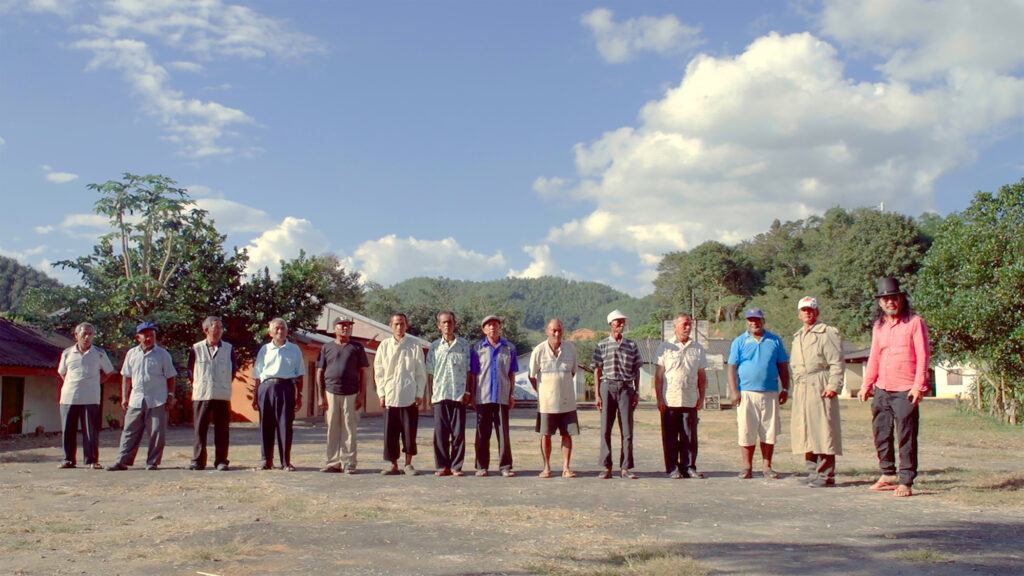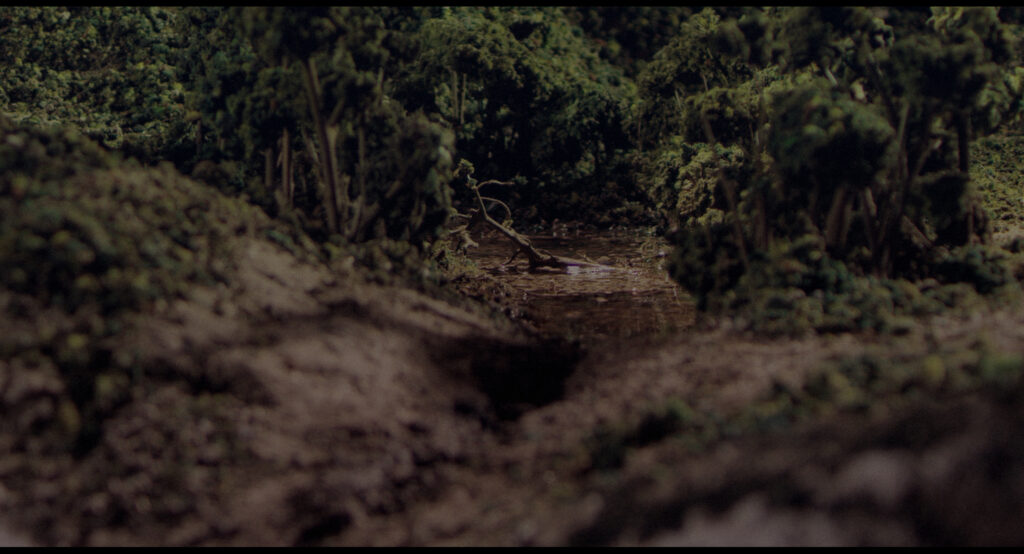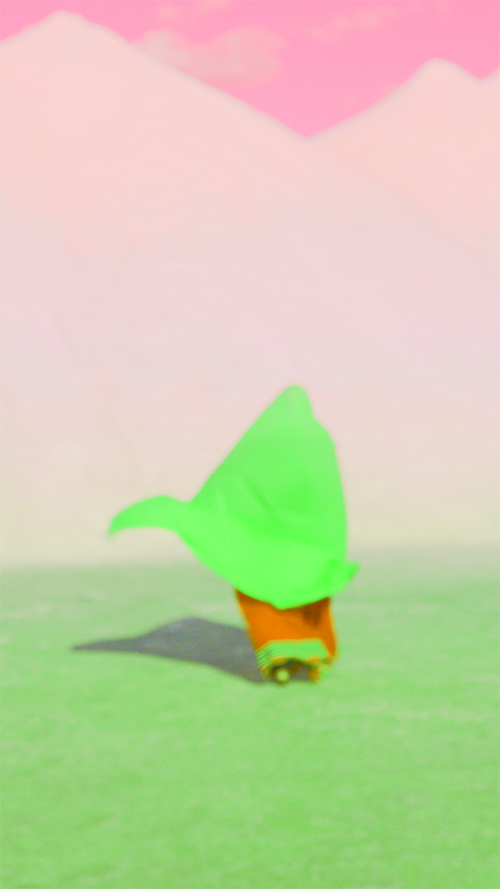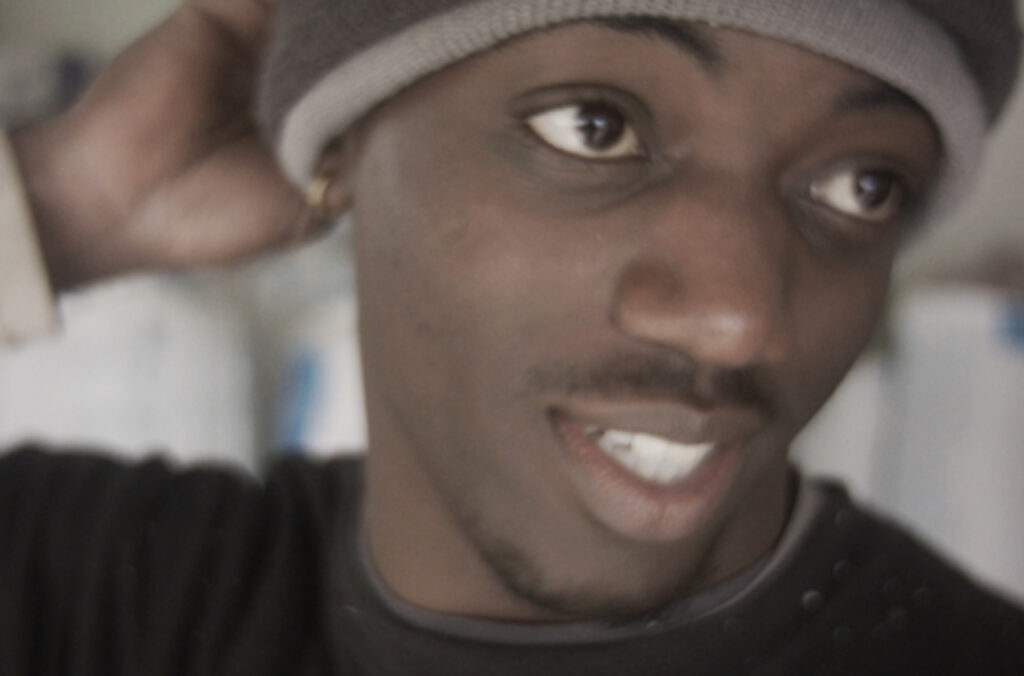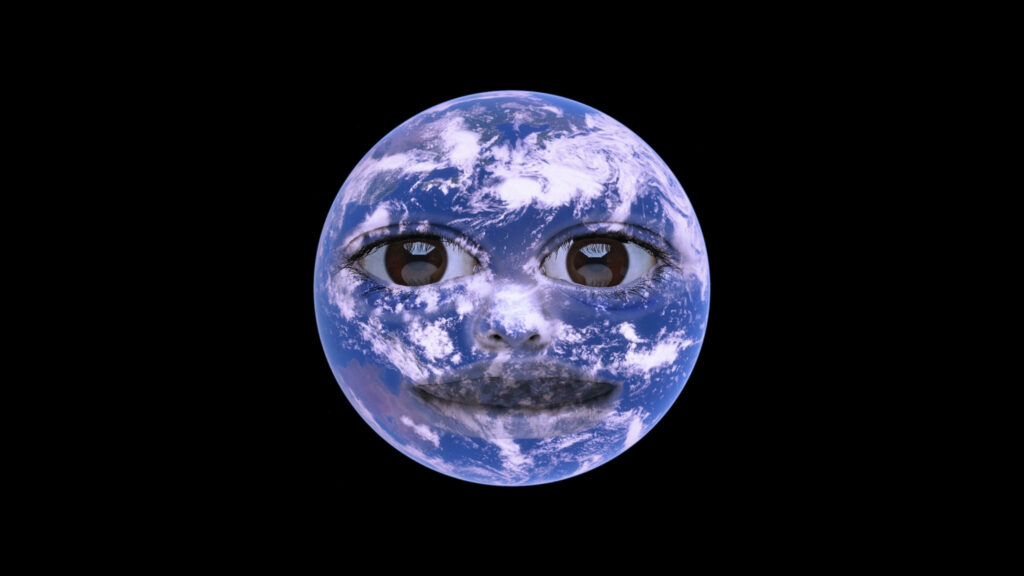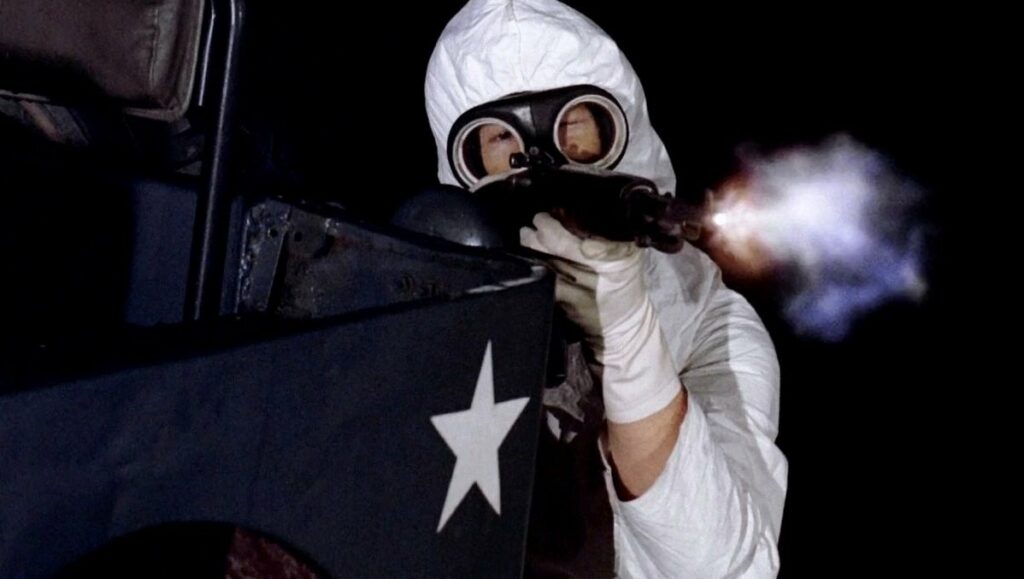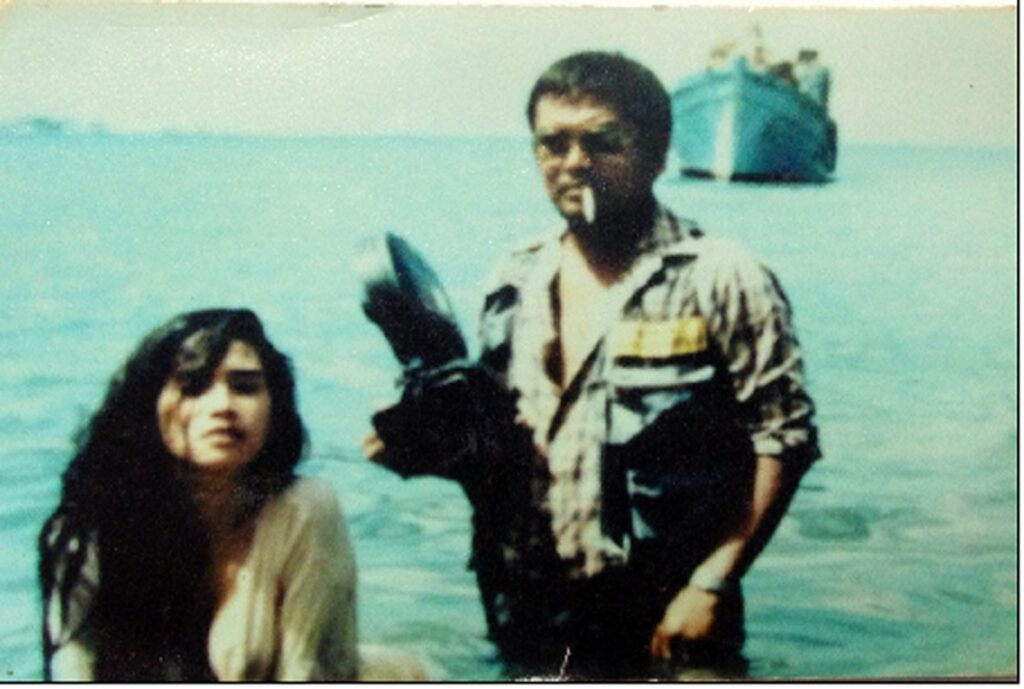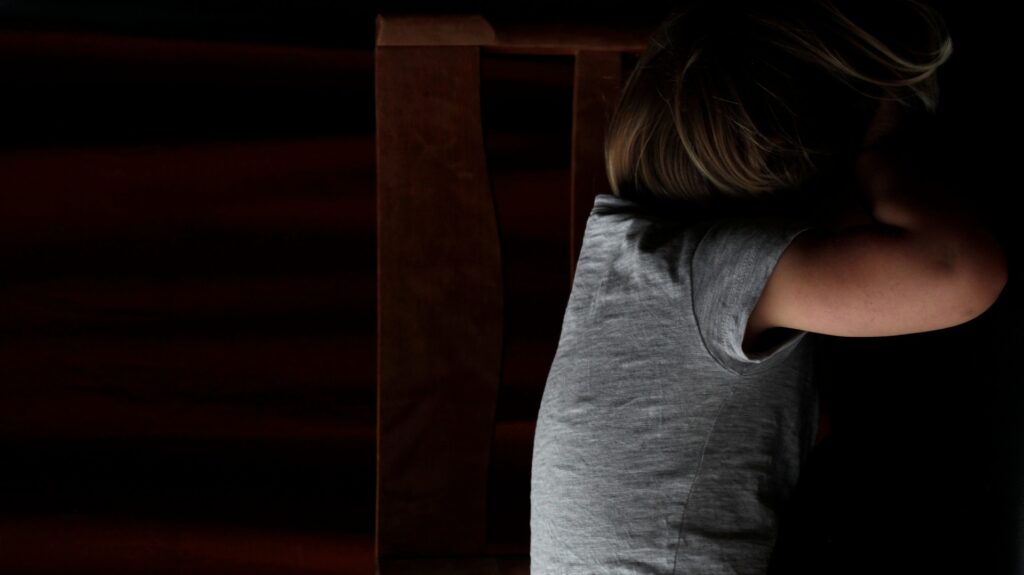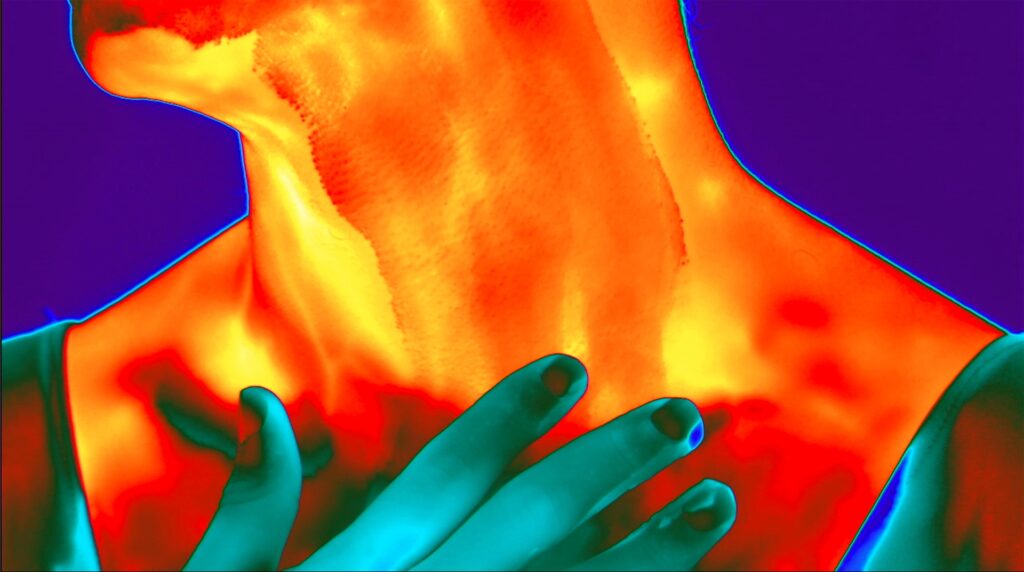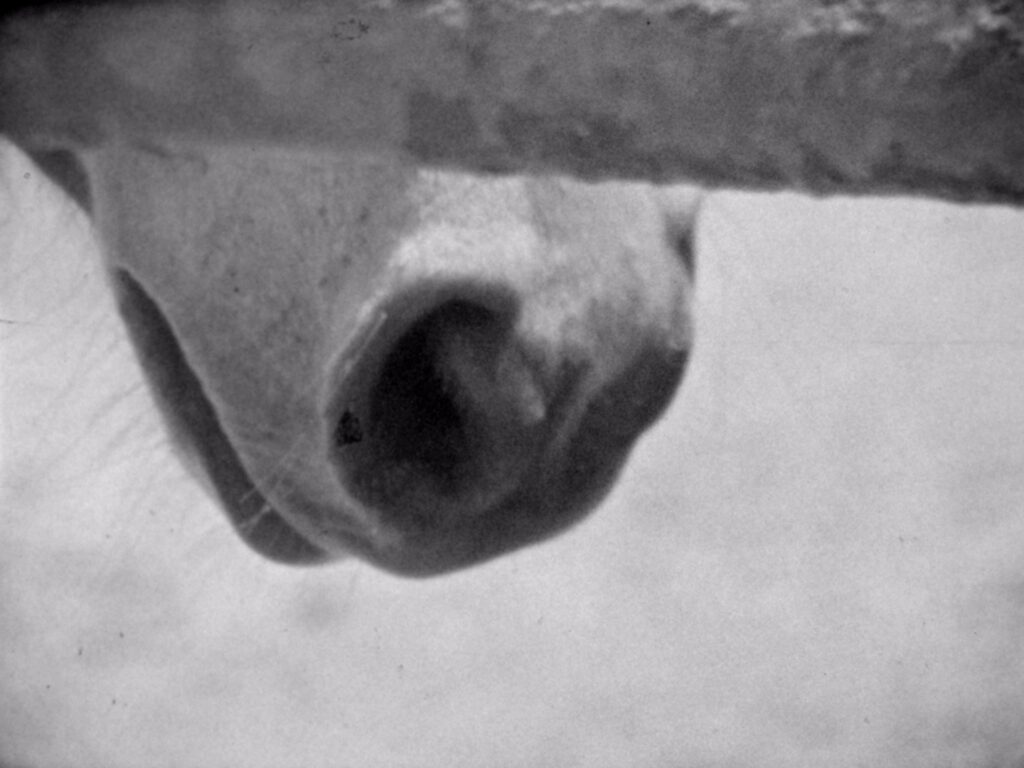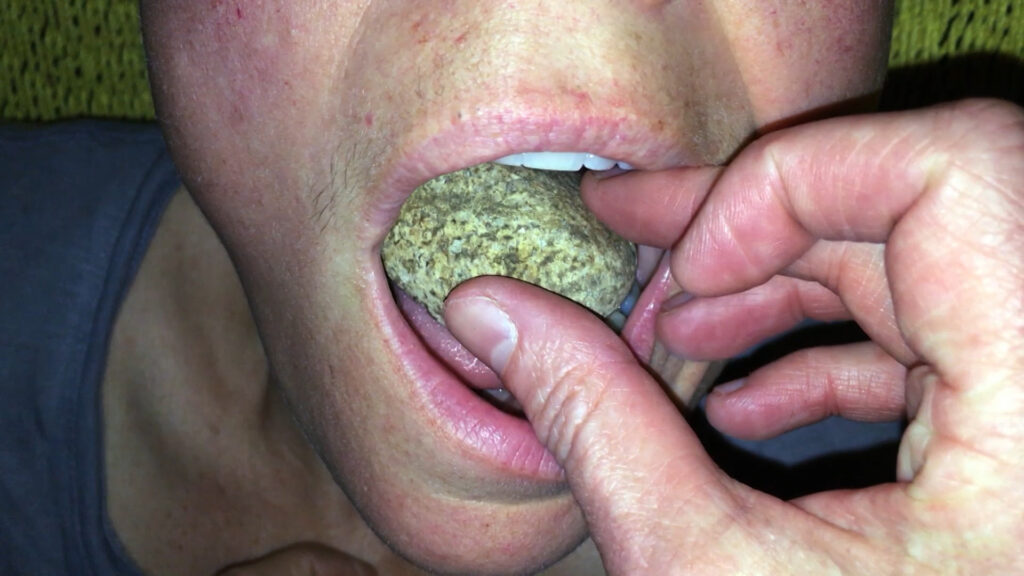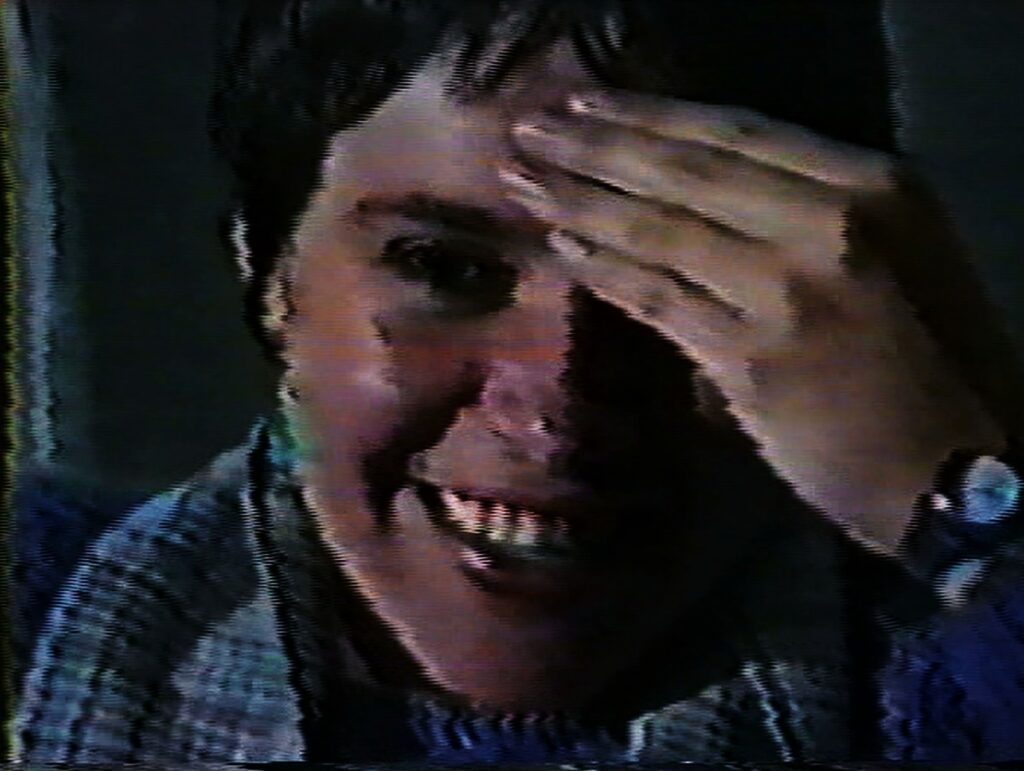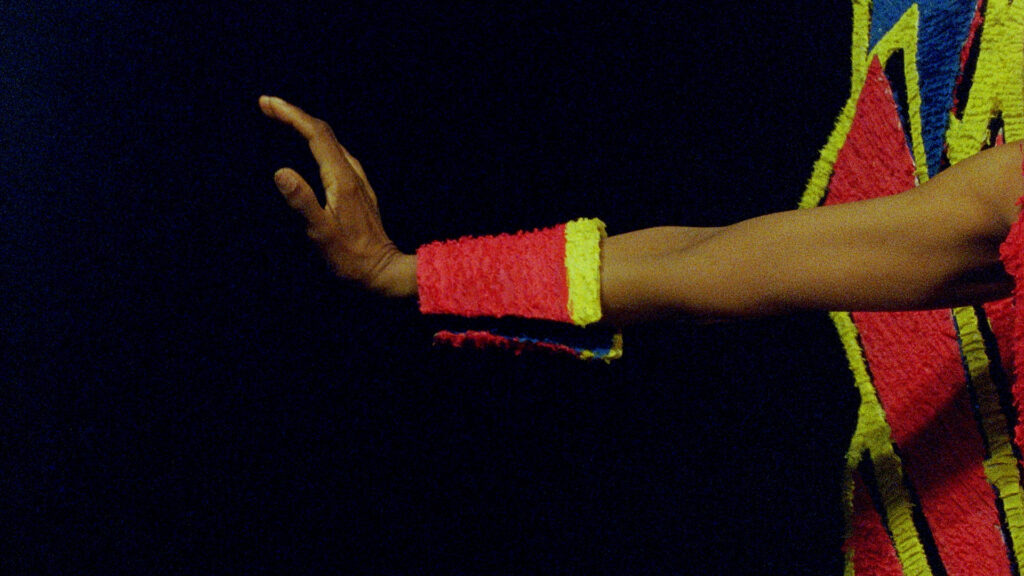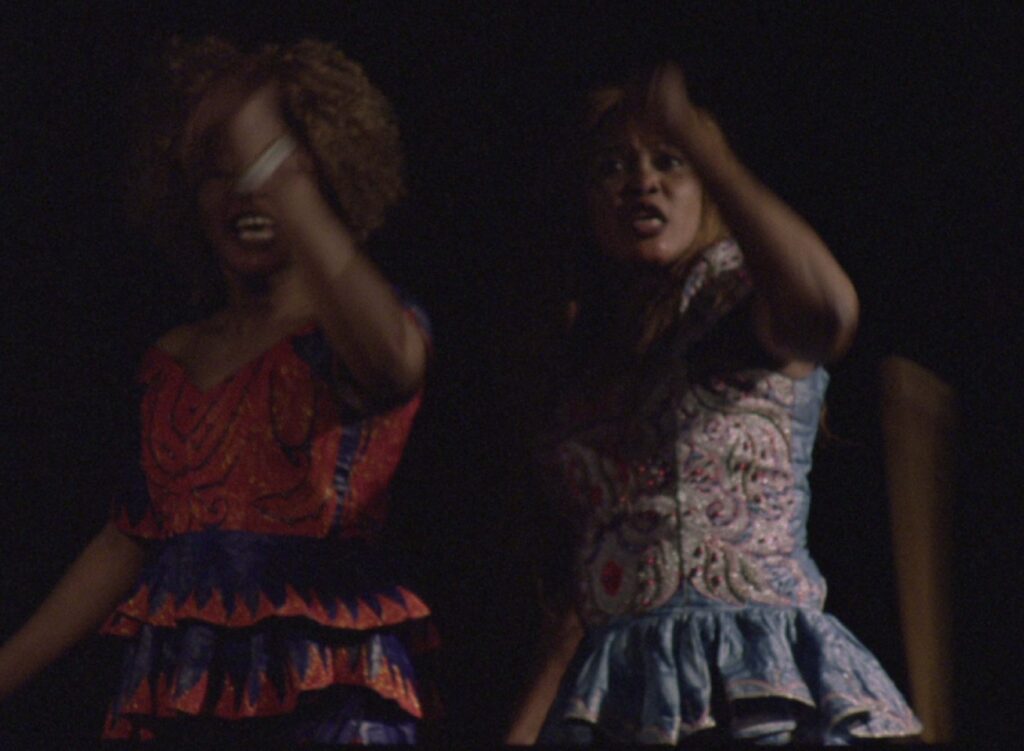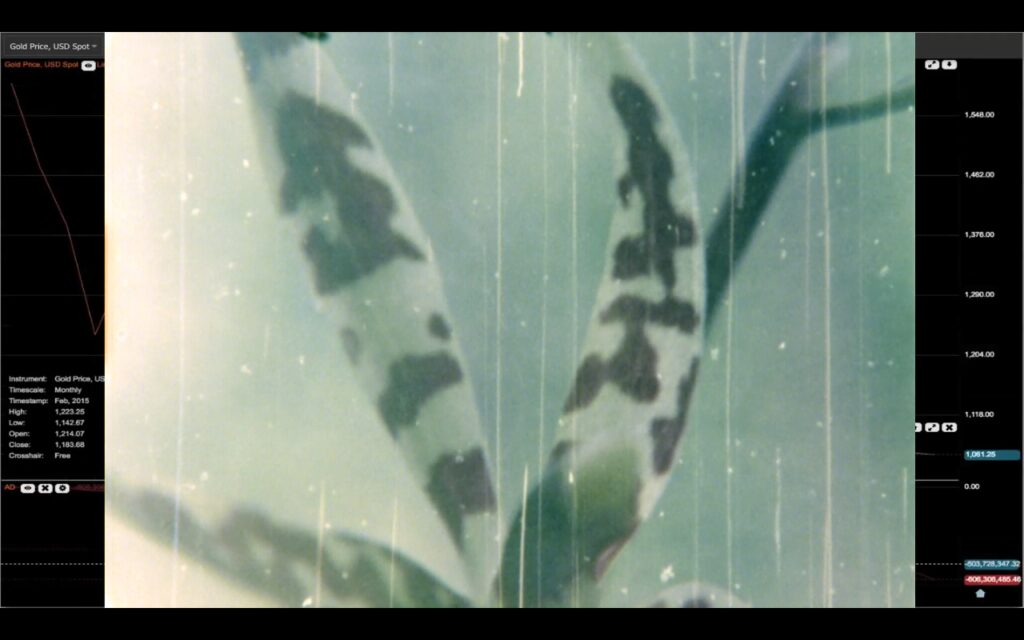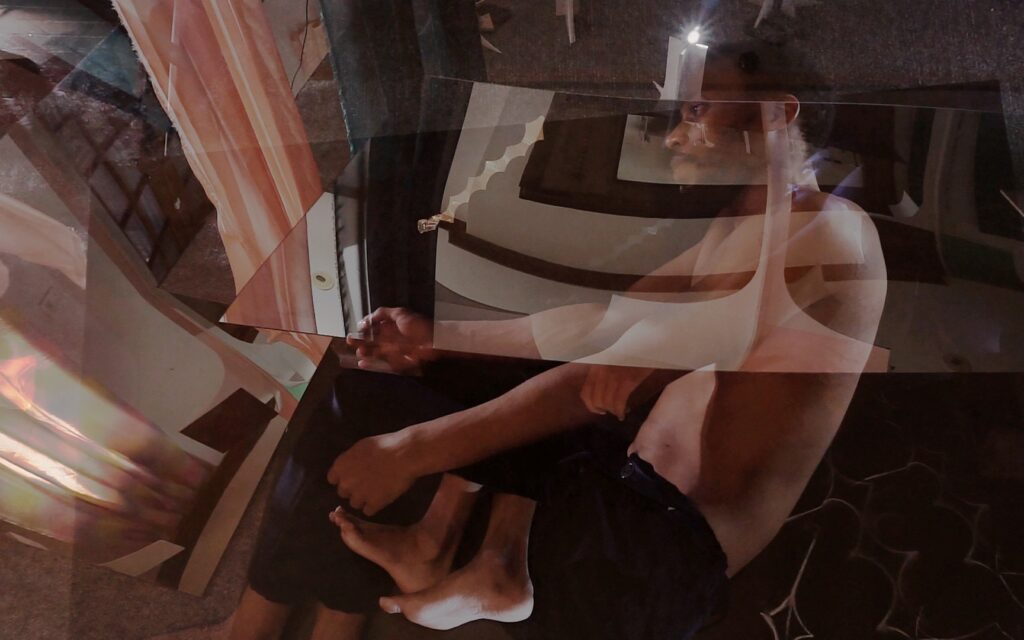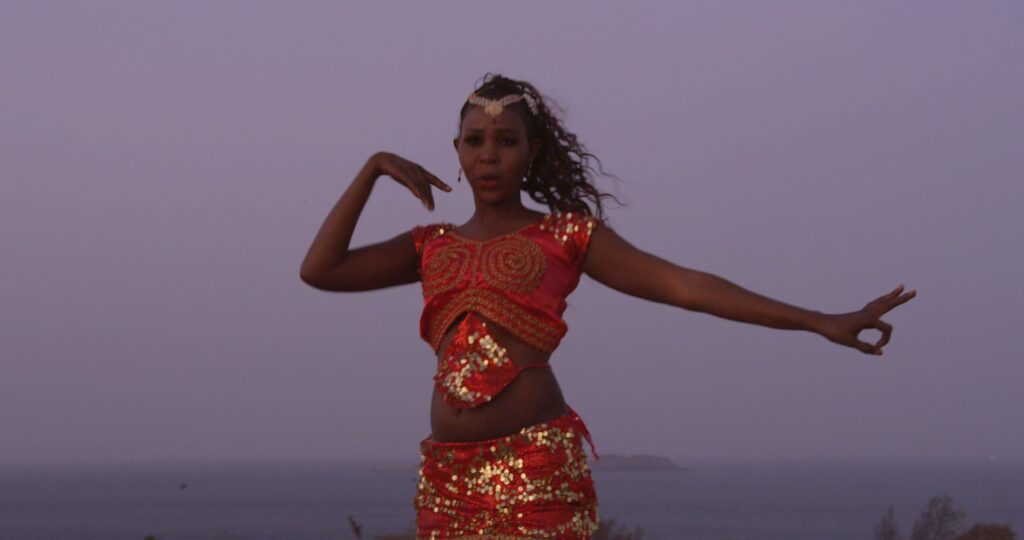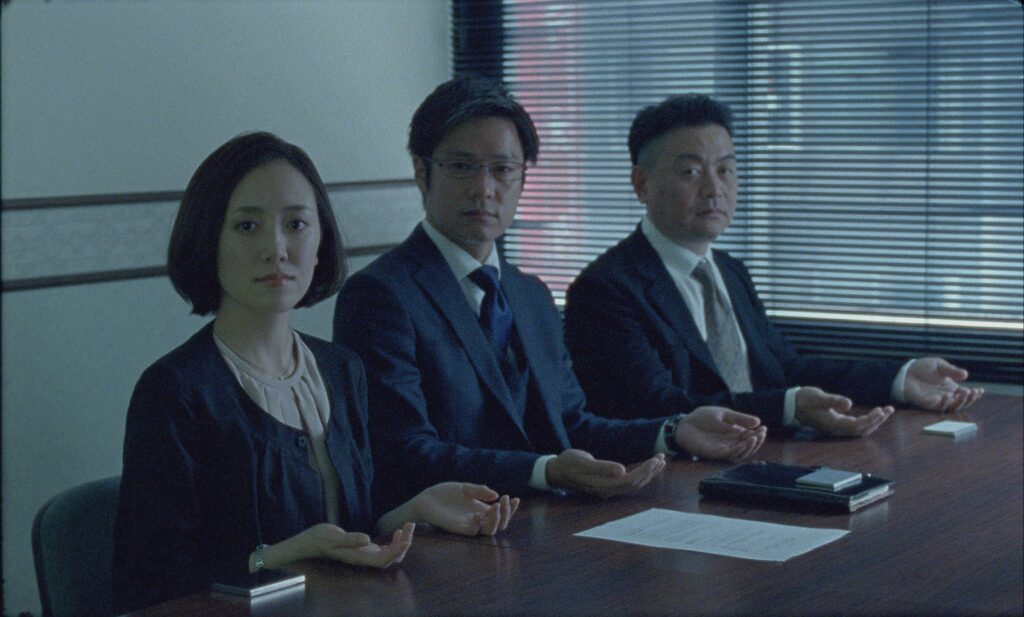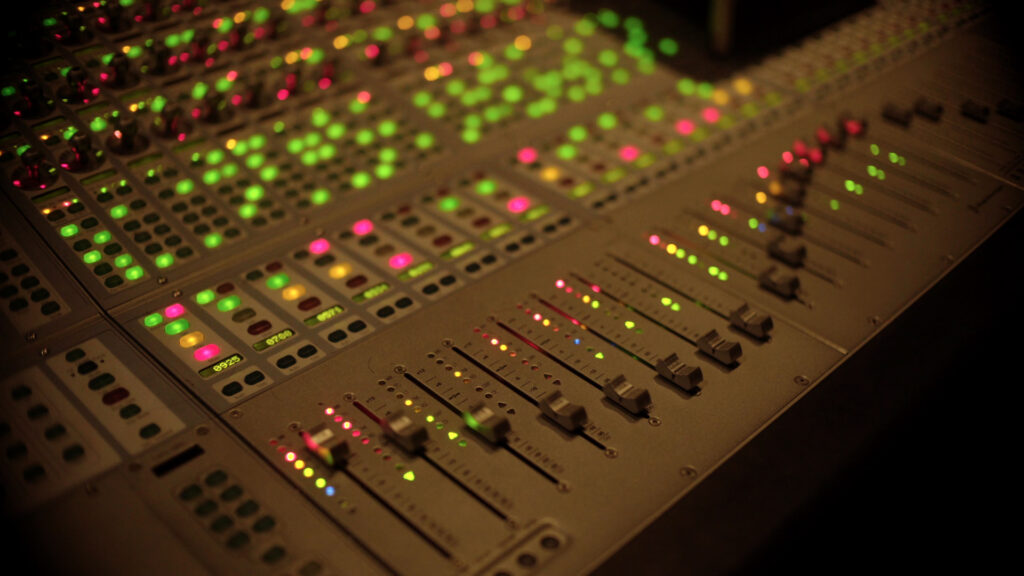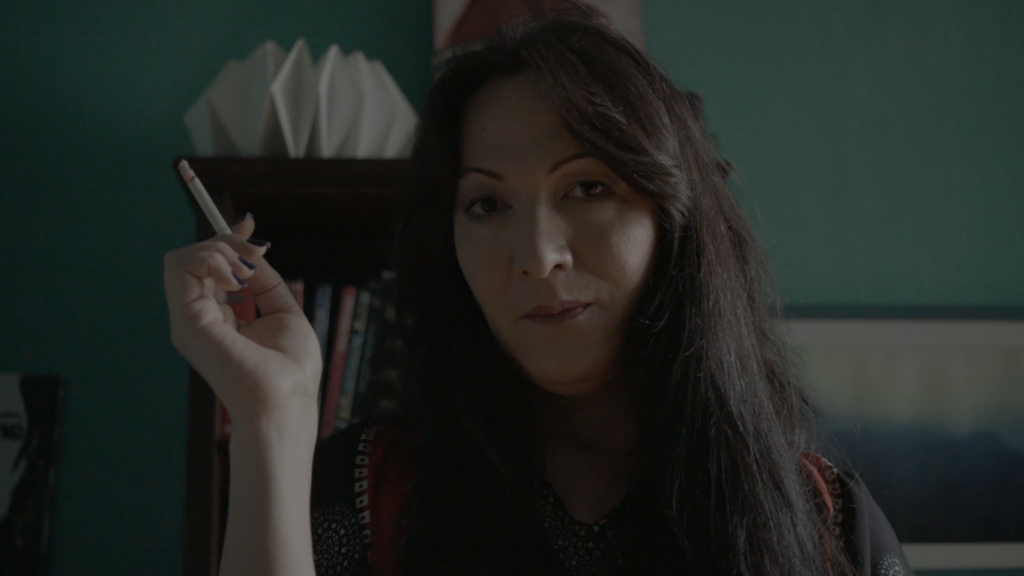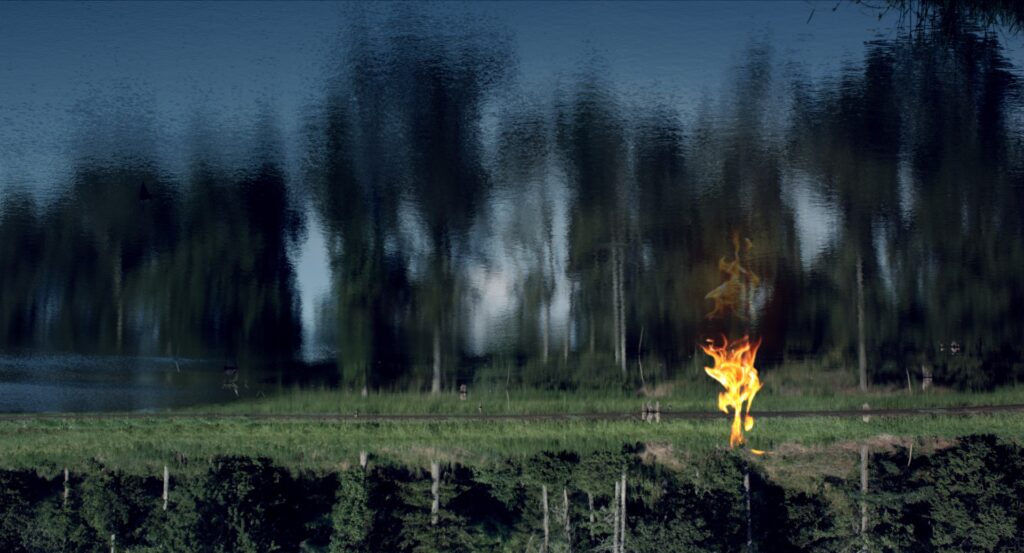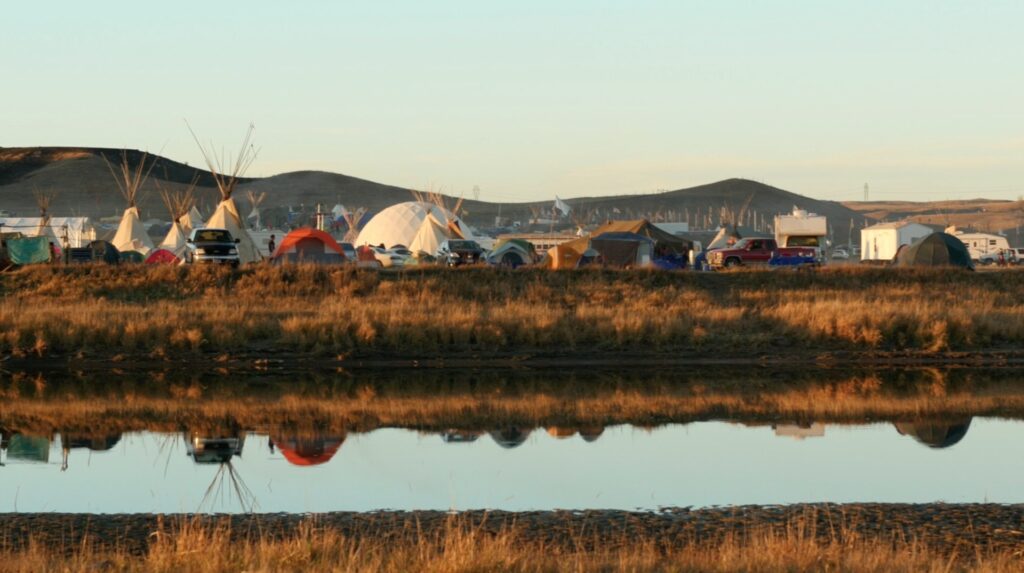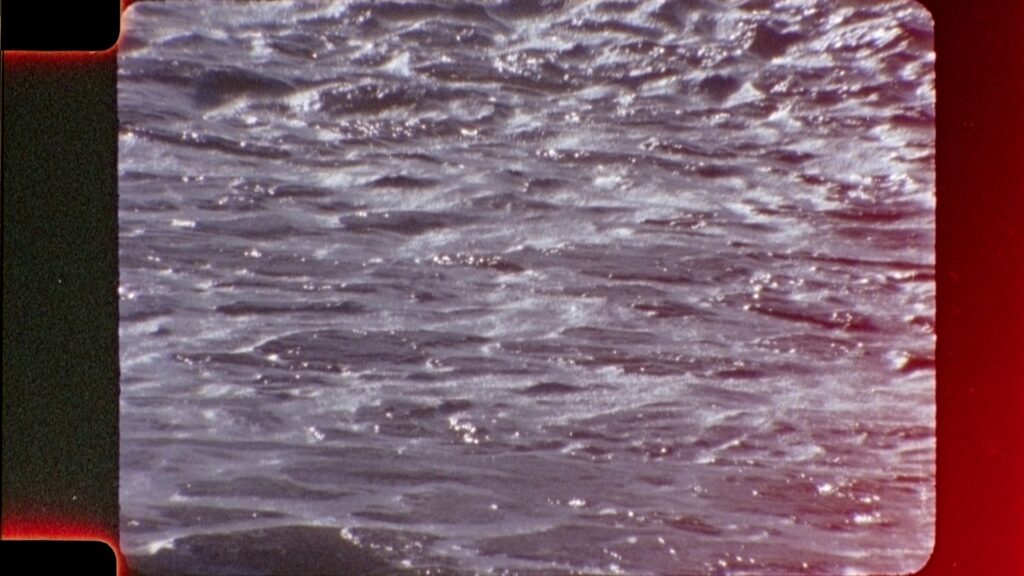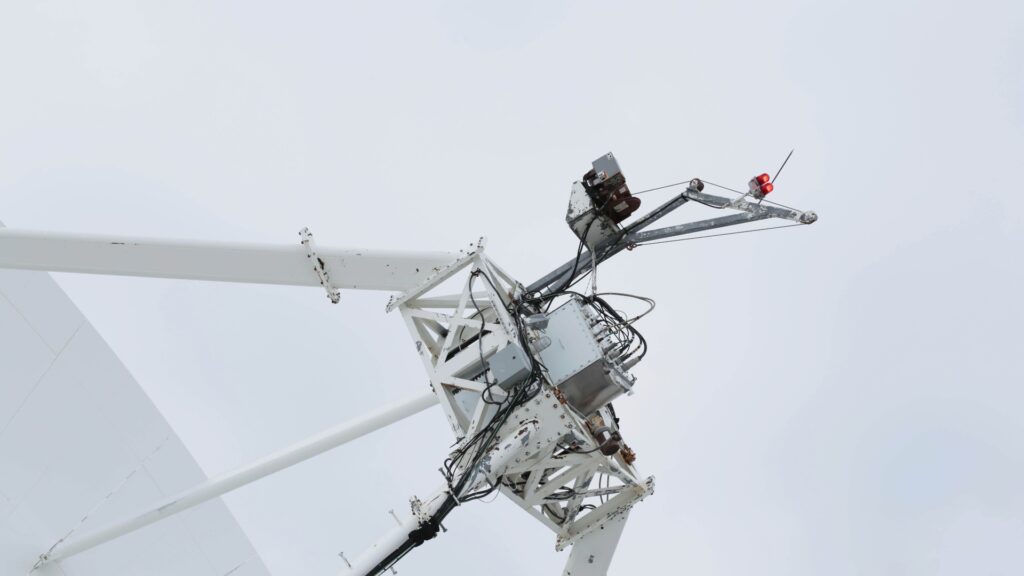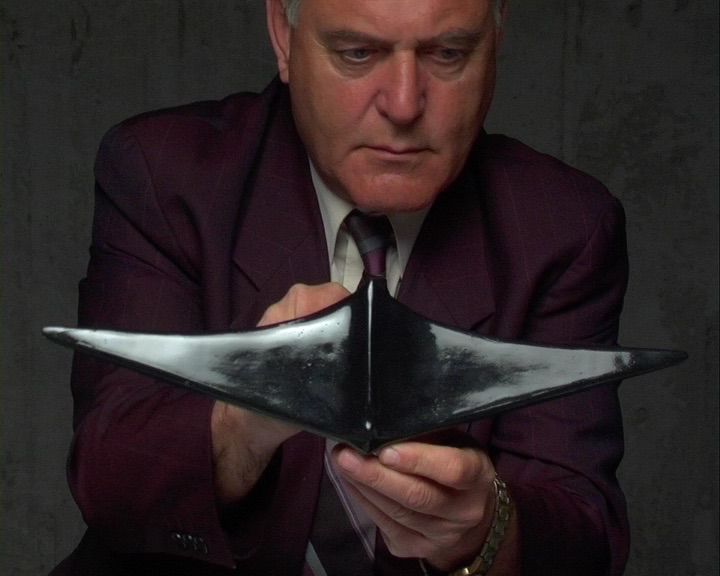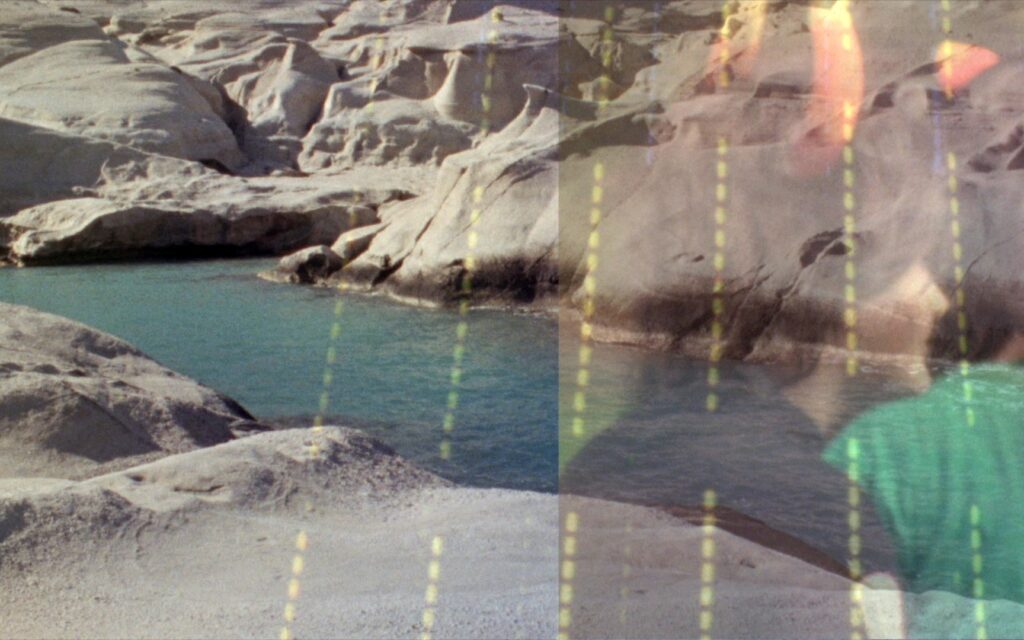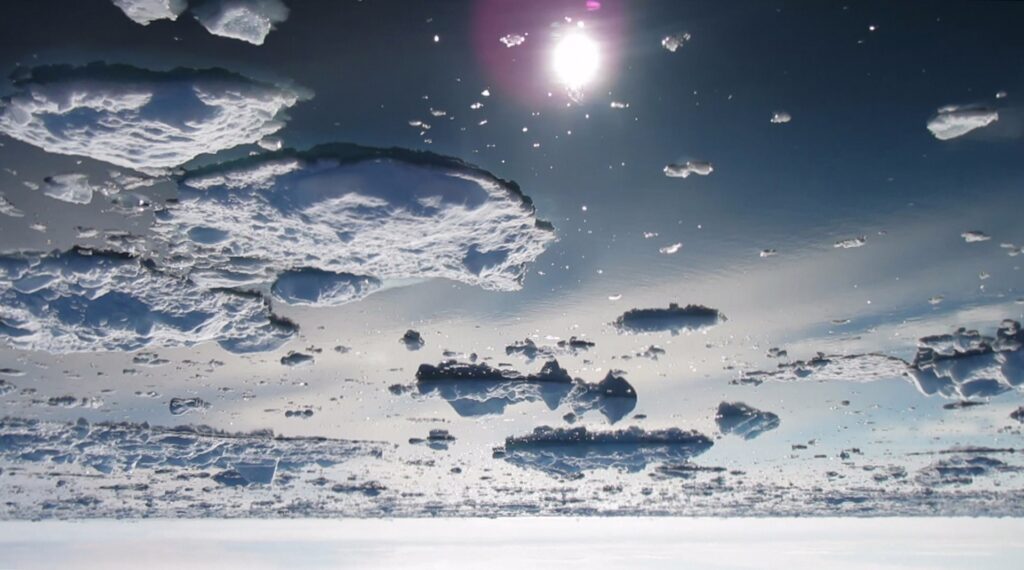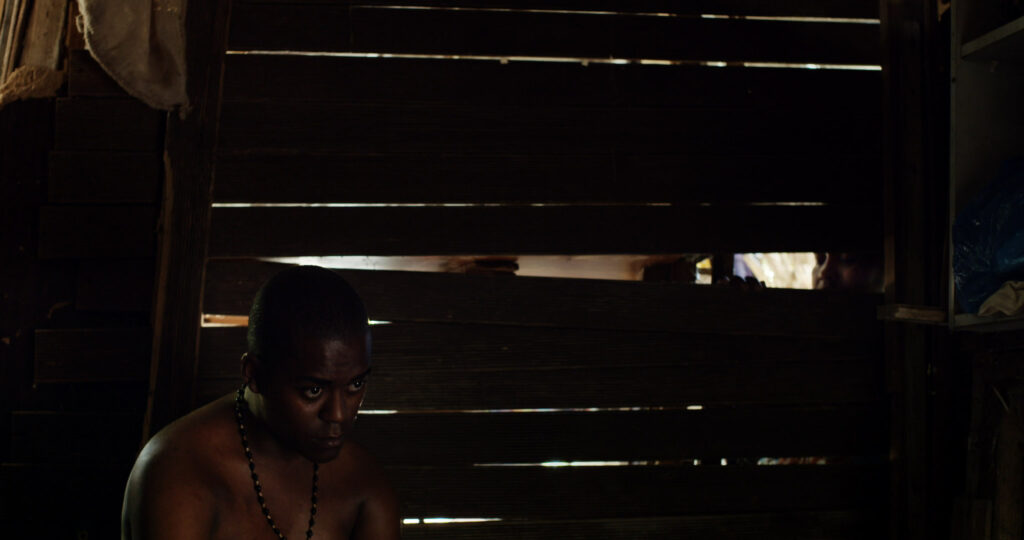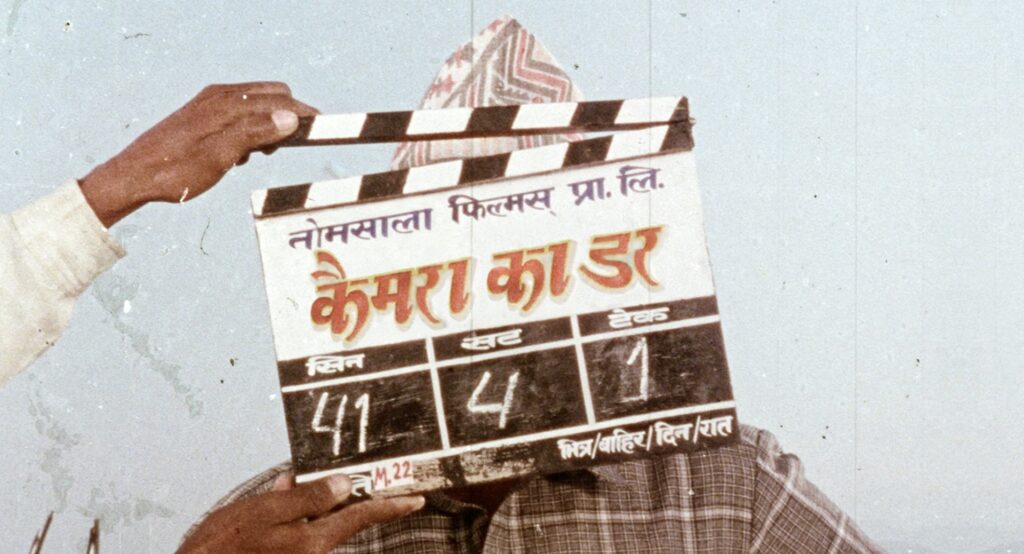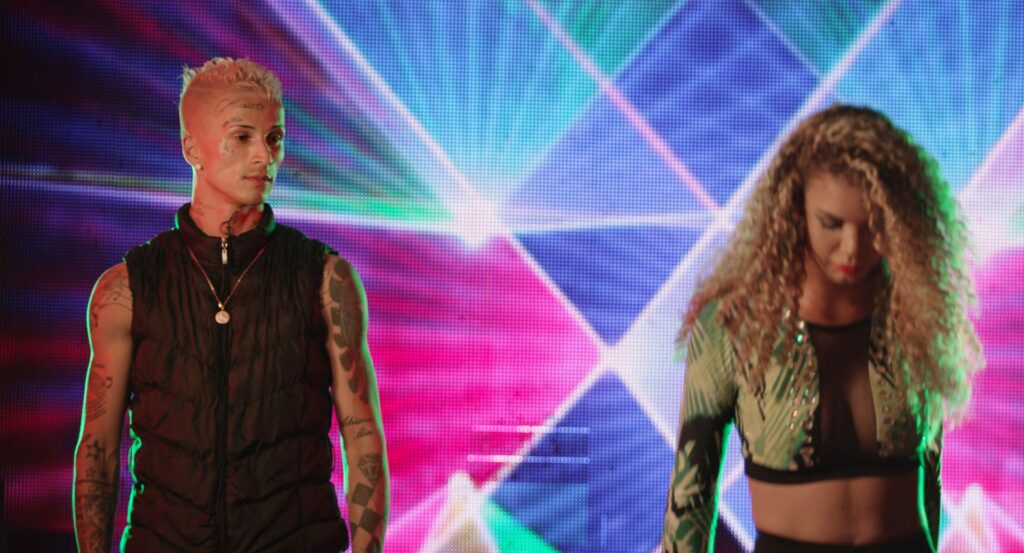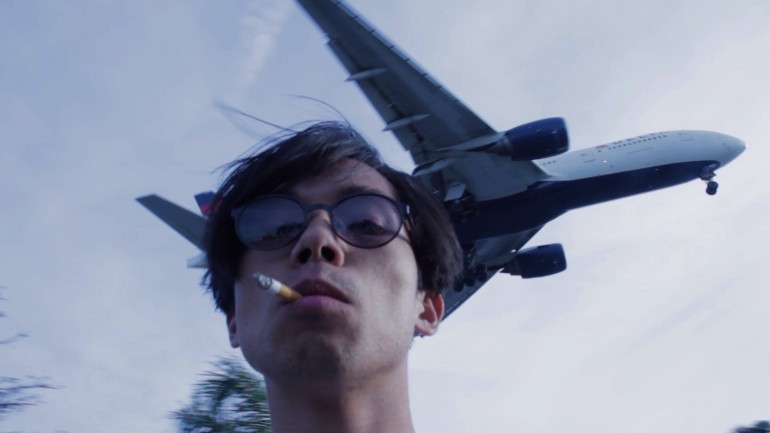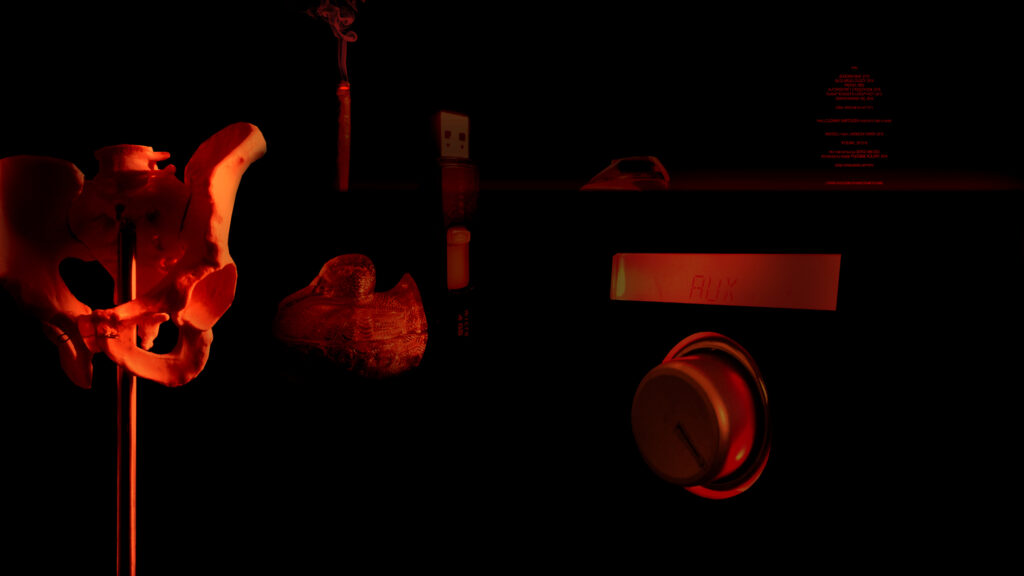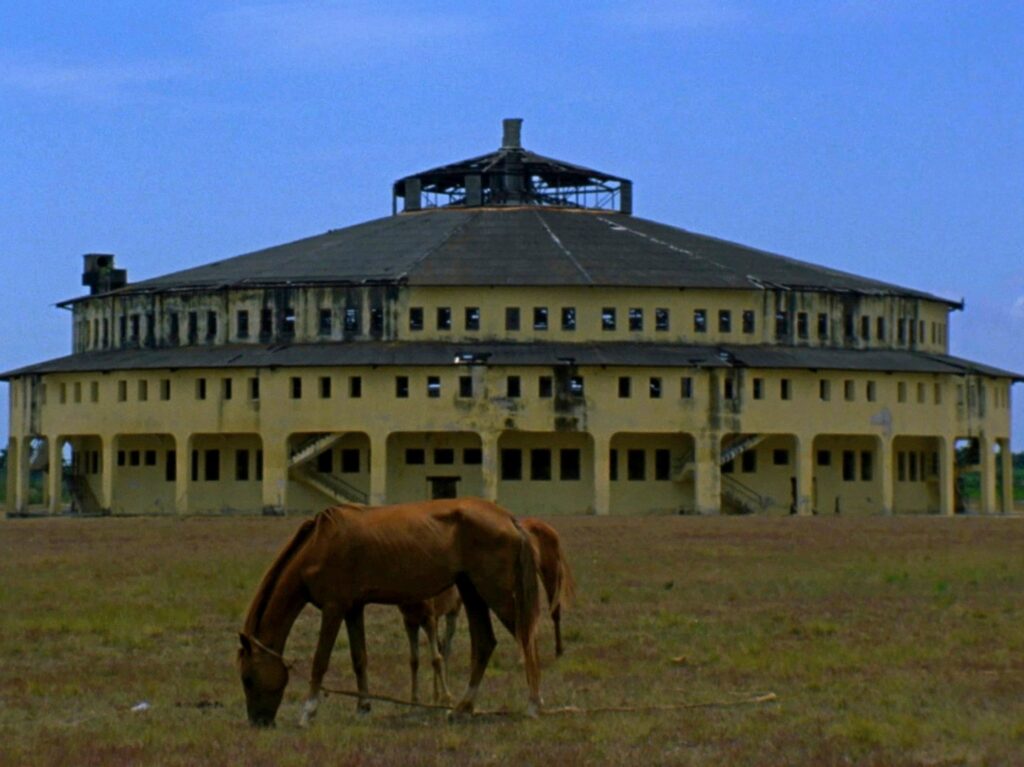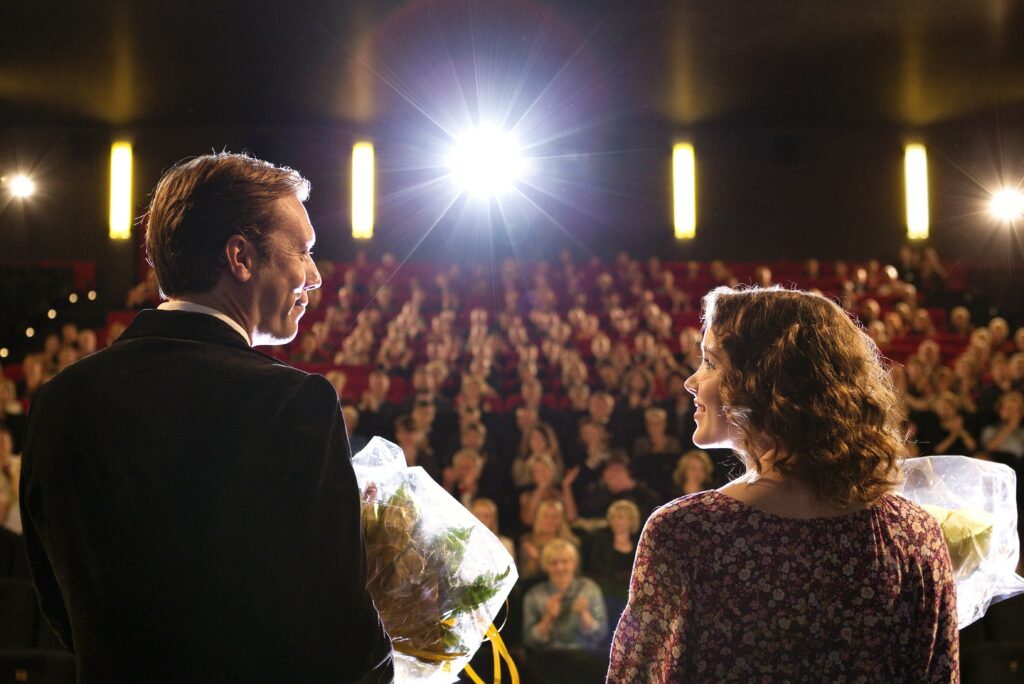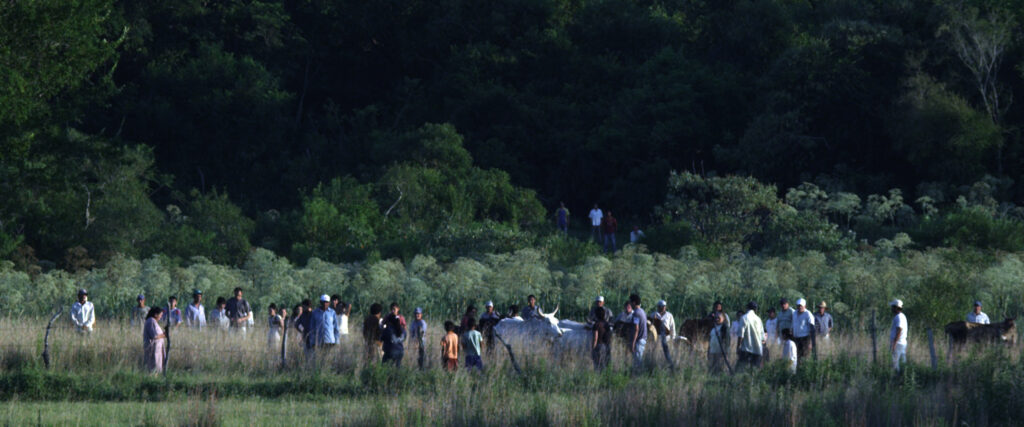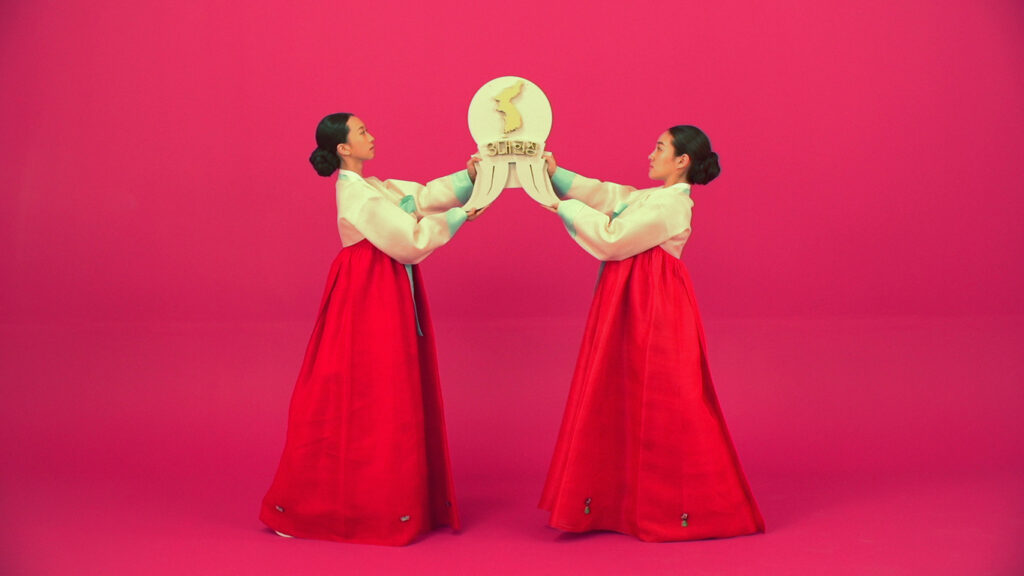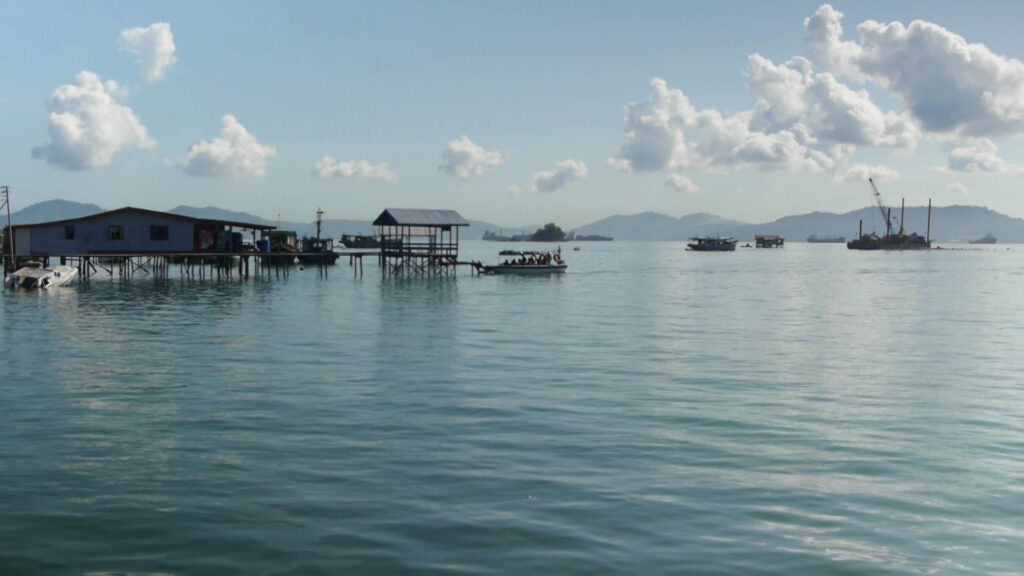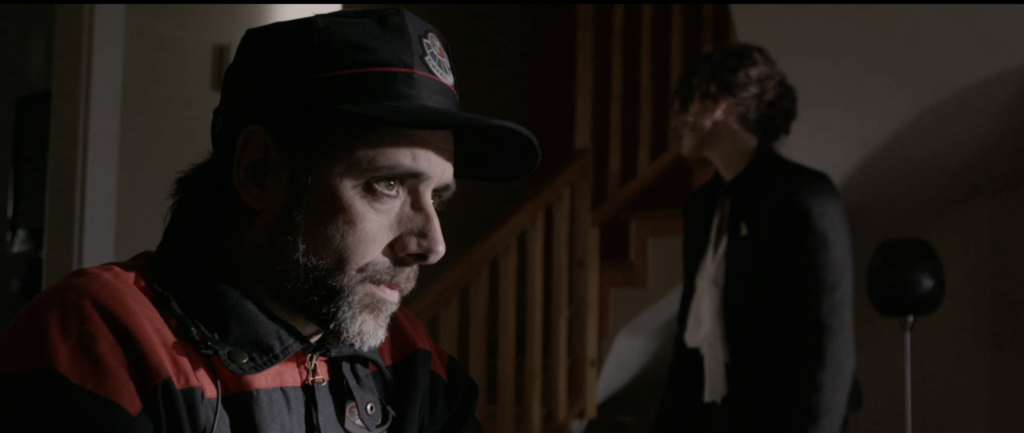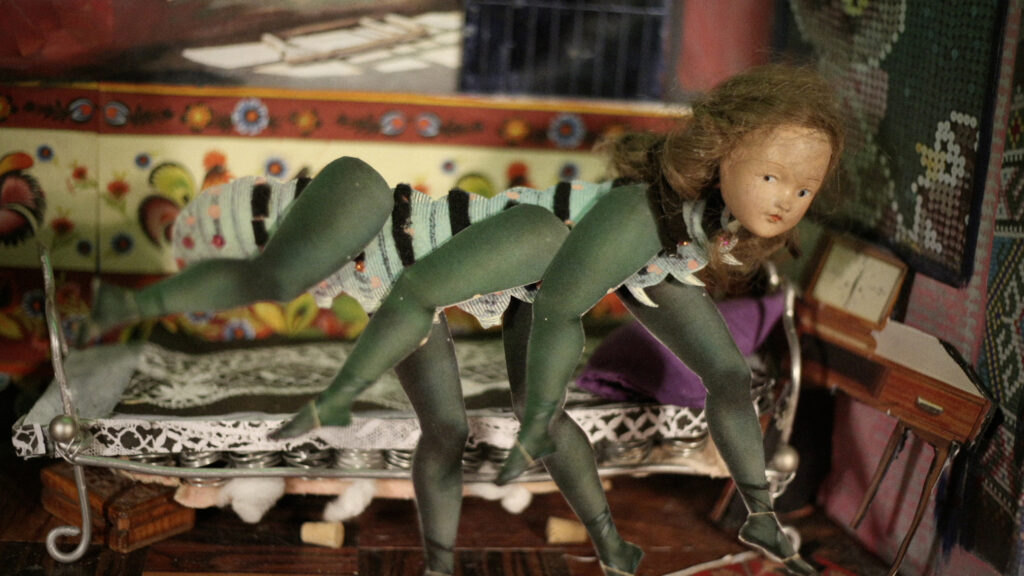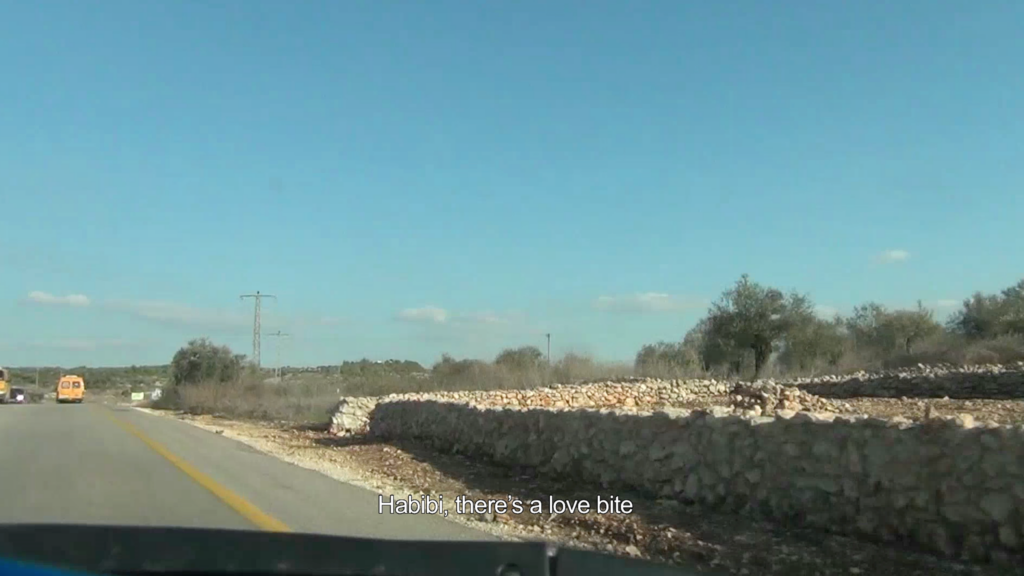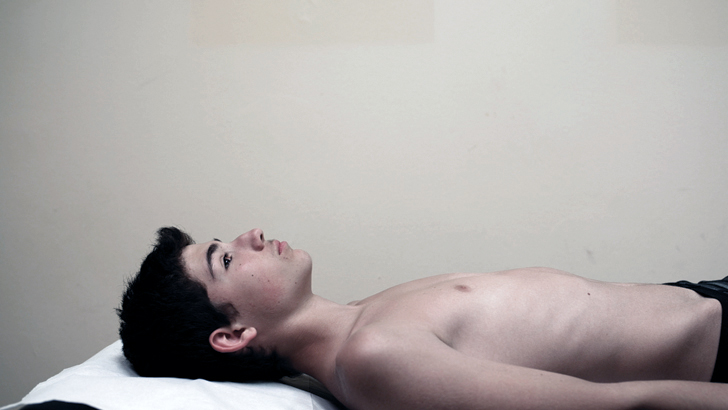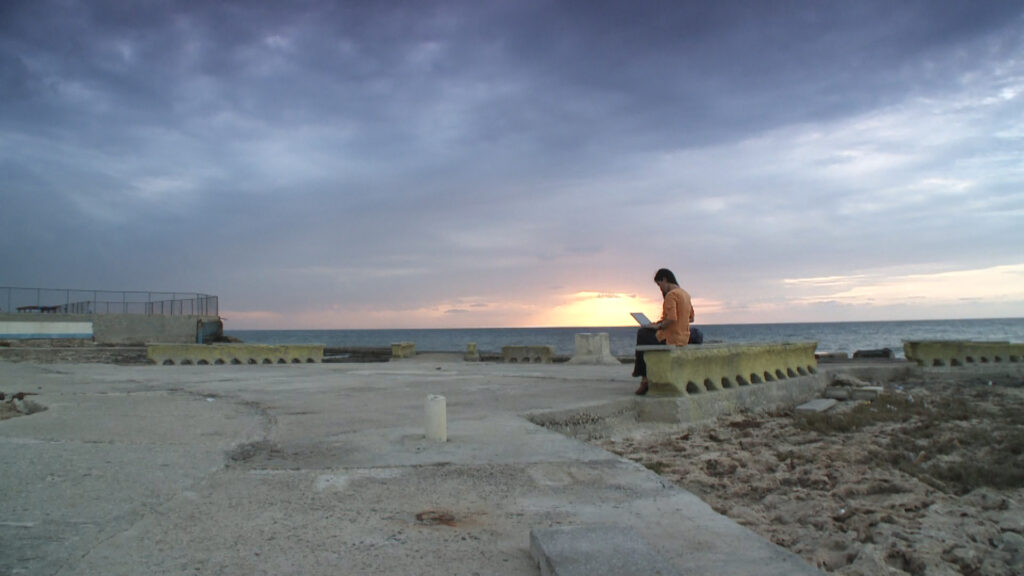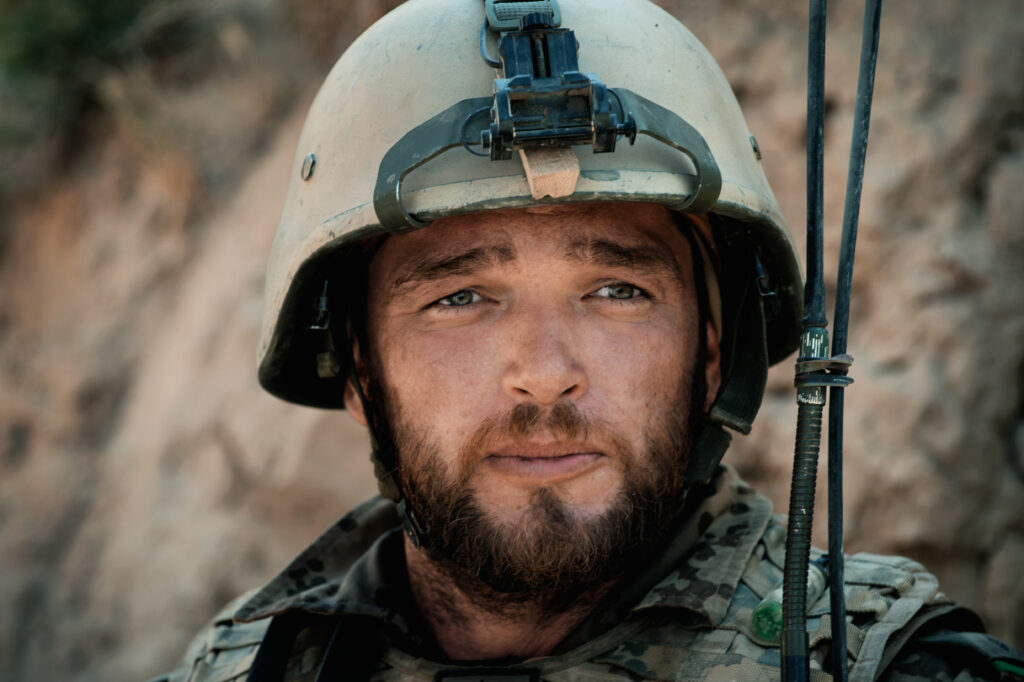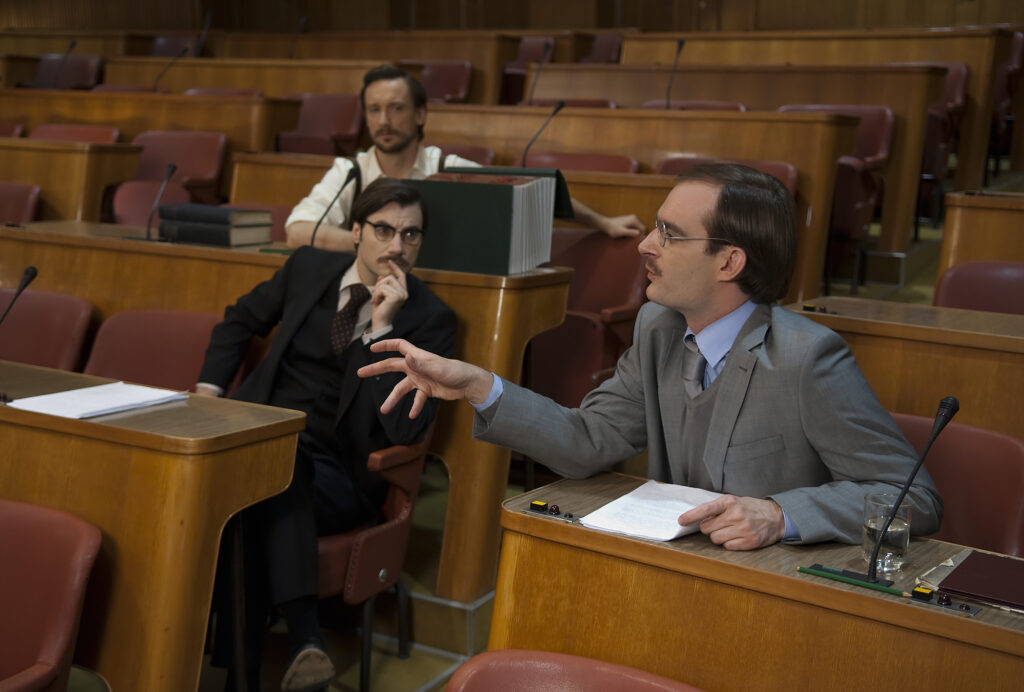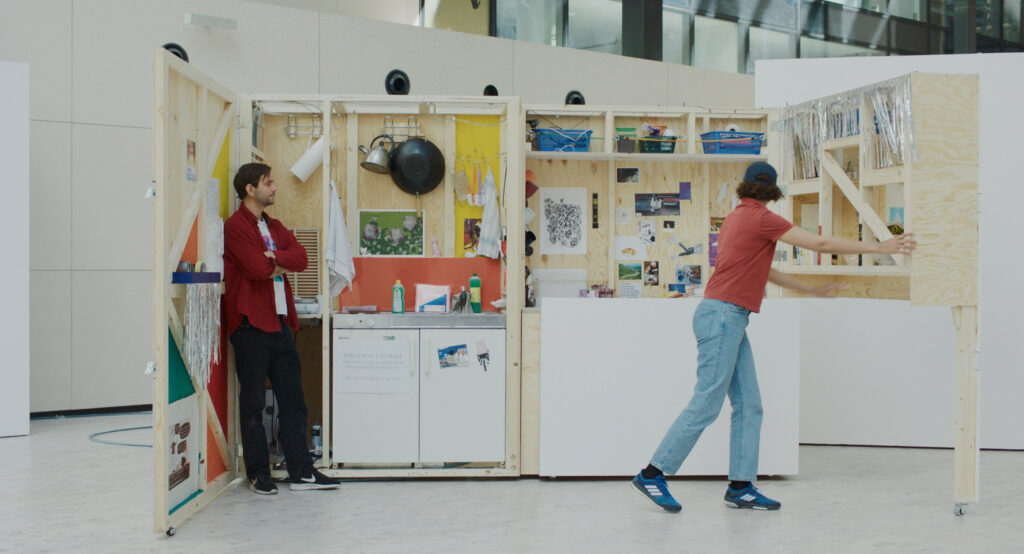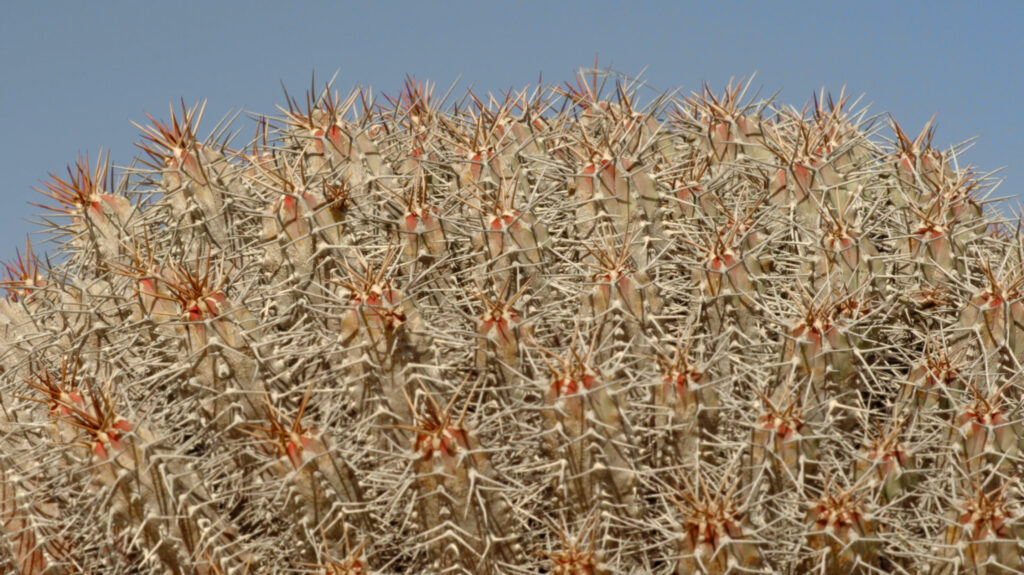I wouldn’t want to belong to any club that would have me as a member. That includes Chauvin-ists; children who disturb corpses; frightened men living in a matriarchal society; or a film crew consisting of a slime robot, talking mandrill and lesbian couple whose relationship crumbles under the glow of bisexual lighting.
Q&A with filmmakers Hardeep Pandhal & Benjamin Crotty
Run Time
Shine bright. Portraits of a nomadic musician and an animatedly-perverse single father butt up against a simulacrum of the Middle East and a tactile inquiry into the natural world. Taken together, expressions of personal, political, spiritual, mystical and sexual agency provide powerful statements of either resistance to or complicity in an increasingly commodified world.
Run Time
Sensory, colourful and widescreen, the forest is already naturally cinematic.
Since the turn of this century, the forest has fascinated a new generation of global art filmmakers who have chosen the forest as a space for their creative exploration. ‘Screening the Forest’ takes nature as its point of departure by weaving together cinematic forests from India, Japan, Singapore, South Korea, Taiwan, Thailand, Vietnam and the Philippines. In some cases, the forest may even refer to nothing but a world construed as its own territory.
Like the real forest, where many genuses of trees coexist, the programme emphasizes that cinema is constructed not only culturally and aesthetically, but also ecologically or even animistically. As new strategies and interpretations of the forest emerge from a variety of Asian filmmakers, new trees can be sowed within our own imagination.
Q&A with curator Dr. Graiwoot Chulphongsathorn
Run Time
Shot in Colombia, The Magical State depicts the possession of a Wayuu woman by a 40 million year old oil demon. Framed as an interrogation, an off-screen male voice challenges the woman, who gazes back directly into the viewer’s eyes, placing a curse on ‘man’, the species who have woken it from geological time. The violence of natural resource extraction—and the resulting violation of land rights—are reflected in the demon’s iridescent-coloured rage and stroboscopic movements.
Agnieszka Polska’s unsettling perspective on humanity takes the form of an animated child-faced sun with melancholy eyes. Digitally sourced images paint a frantic image of a crumbling world. From a distance, the sun jokes about environmental issues and comments on the tumultuous times in which the world finds itself.
The film borrows its title from a poem by Polish poet of the realist/positivist style Maria Konopnicka (1842–1910). The poem ‘What the sun has seen’ recounts in a childish style the quotidian, peaceful rural activities and happy family life of the nation in the countryside, as observed by the sun on its daily journey across the sky. Polska offers her own dark, ironic version of the poem, dealing with contamination by information (information waste) and the role of the ‘helpless observer’ who, like the ‘Angel of History’ in the well-known adage by Walter Benjamin, can only look at the debris piled by lived time without being able to intervene.
Run Time
Run Time
Bodies as markers and makers of change. Desirable and desiring, abject, vulnerable, undignified, flawed and fragile, caught between the mundane and the mythological, the domestic and the supernatural. What shines through are the social, political and emotional ramifications of corporeal transgression.
Run Time
Run Time
Run Time
Accompanying the Festival’s exhibitions programme, the Berwick New Cinema Competition features resolutely contemporary films that transgress restraints of genre, capital and expectation. Doubling in size since its first iteration in 2016, it is one of the Festival’s ambitions to develop dialogue around different presentation potentials for the moving image.
A drive towards liveness and agency provides a critical framework for selections.
This year’s jury are 2016 Berwick New Cinema Award winner Camilo Restrepo, artist and curator Amal Khalaf (Serpentine Gallery and GCC Collective) and film programmer Joanna Raczynska (National Gallery of Art, Washington).
Run Time
Run Time
From hundreds of entries responding to our Border Crossing theme, we bring you some of the best short films and artists’ videos from across the world as part of the 2nd Inntravel Short Film Award.
Run Time
Run Time
Run Time
Run Time
Run Time
Run Time
In Maat means Land, Fox Maxy (Ipai Kumeyaay and Payómkawichum) has created an intoxicating and urgent film collage that gives invigorating expression to contemporary Indigenous identity, culture and experience. Exploring the question, “what does it mean to come from somewhere?”, Maxy pays homage to the land and his surroundings, whilst challenging us to think about the painful and multi-layered histories that exist within territories scarred by settler colonialism.
Run Time
Manifesto establishes a multifaceted portrait of an arts academy which has been recently subsumed into a large national university. Through frank and revealing discussions with students, teachers, administrators and other staff, Ane Hjort Guttu establishes links between seemingly disparate topics—from architecture and surveillance to neoliberalism and dysfunctionality—embedded within the framework of contemporary academia.
Run Time
Galb’Echaouf delves into the idea of amnesia as the result of an extreme and destructive political context which generated shame and guilt. Conflicts put an end to freedom of movement, and most importantly, to the transmission of types of knowledge passed down over centuries. It is fuelled by the statements and silences of the inhabitants of the region, but also by non-human knowledge present in plants and landscapes.


